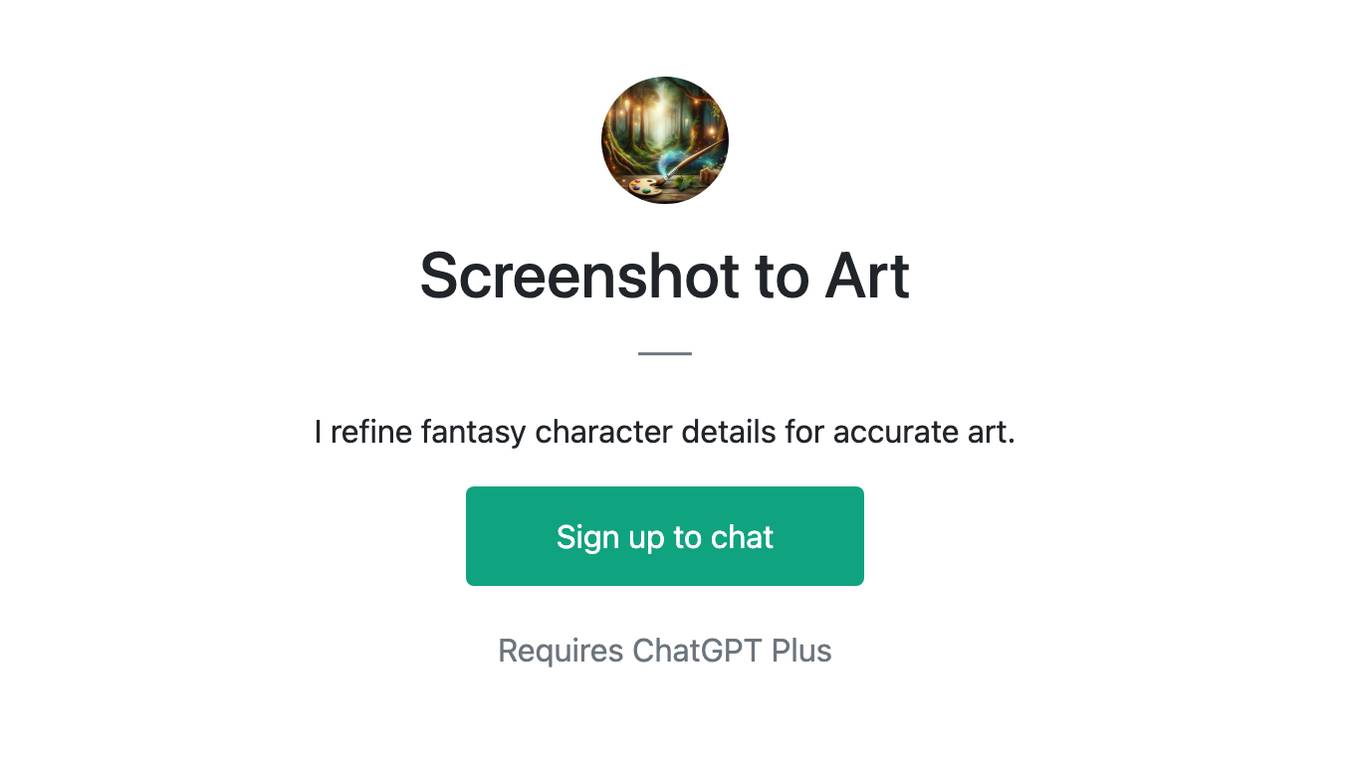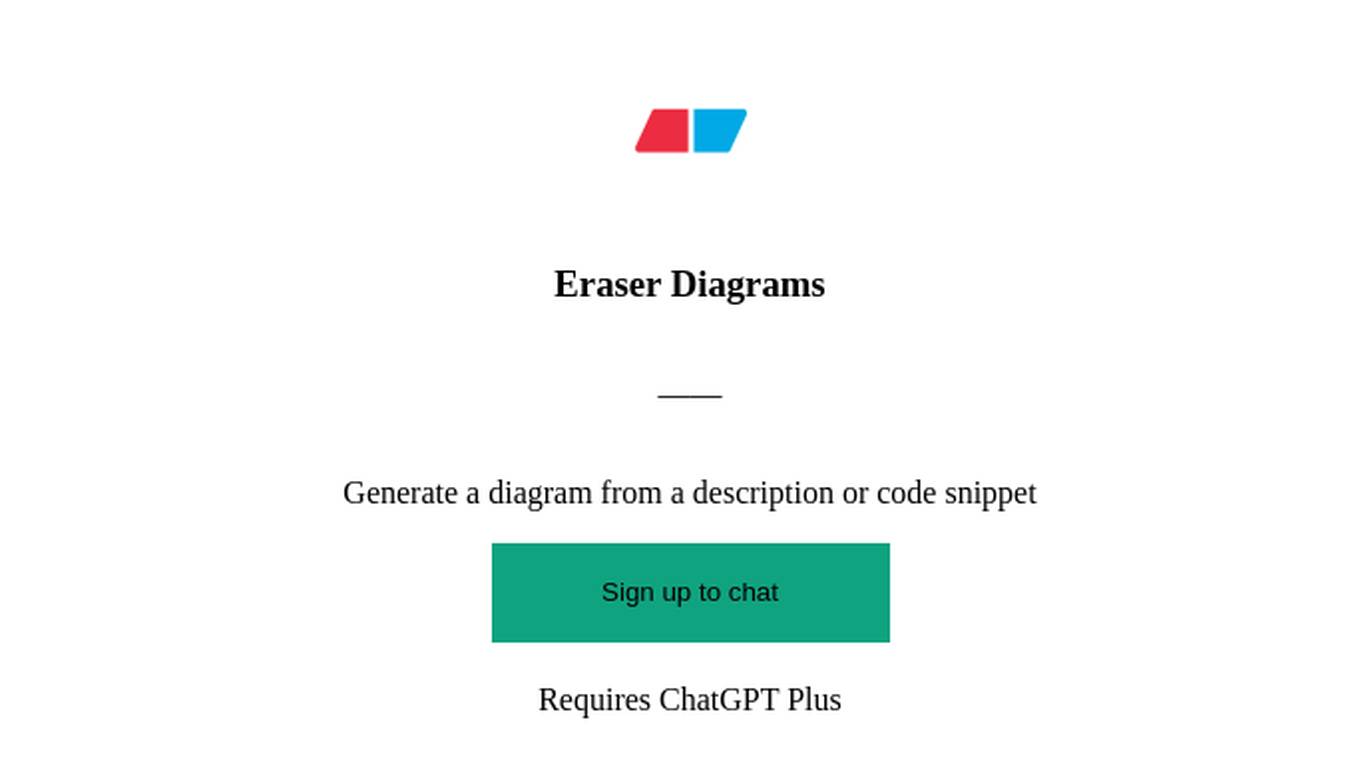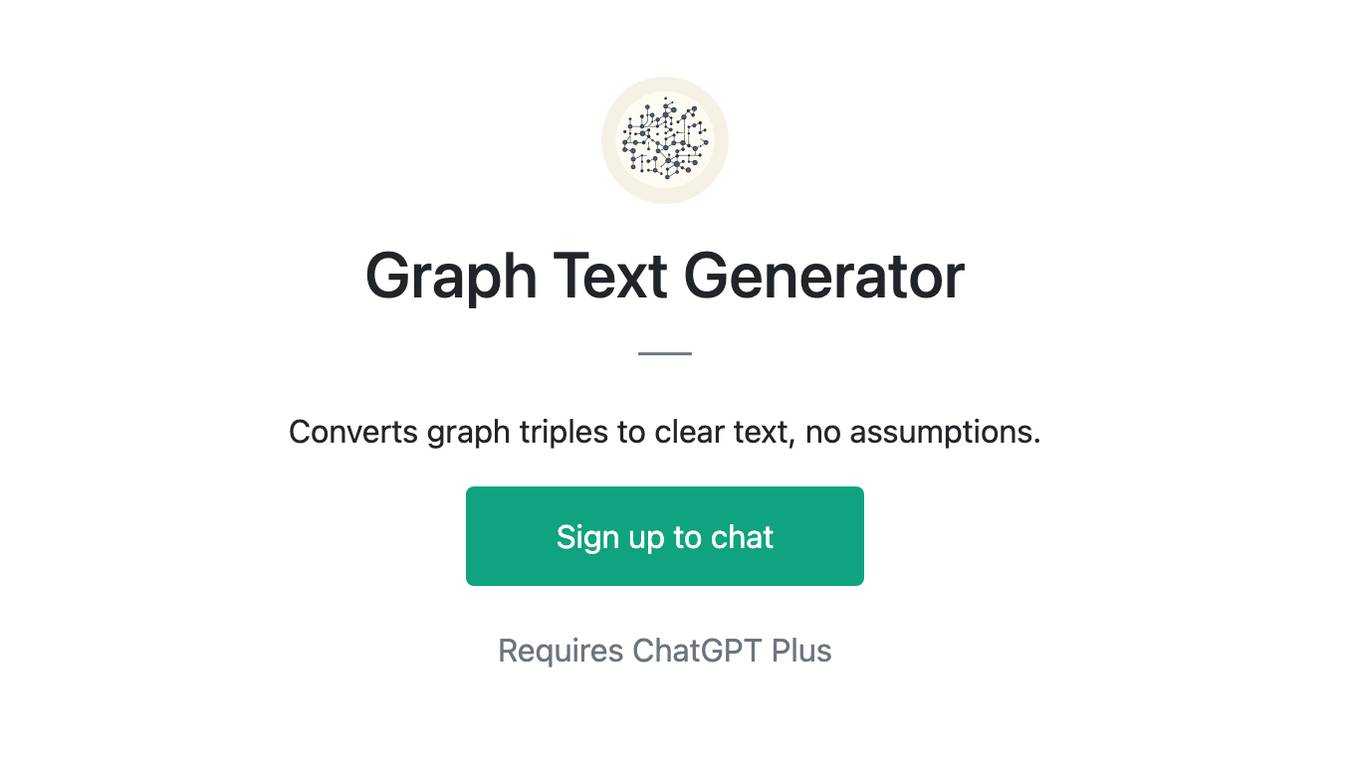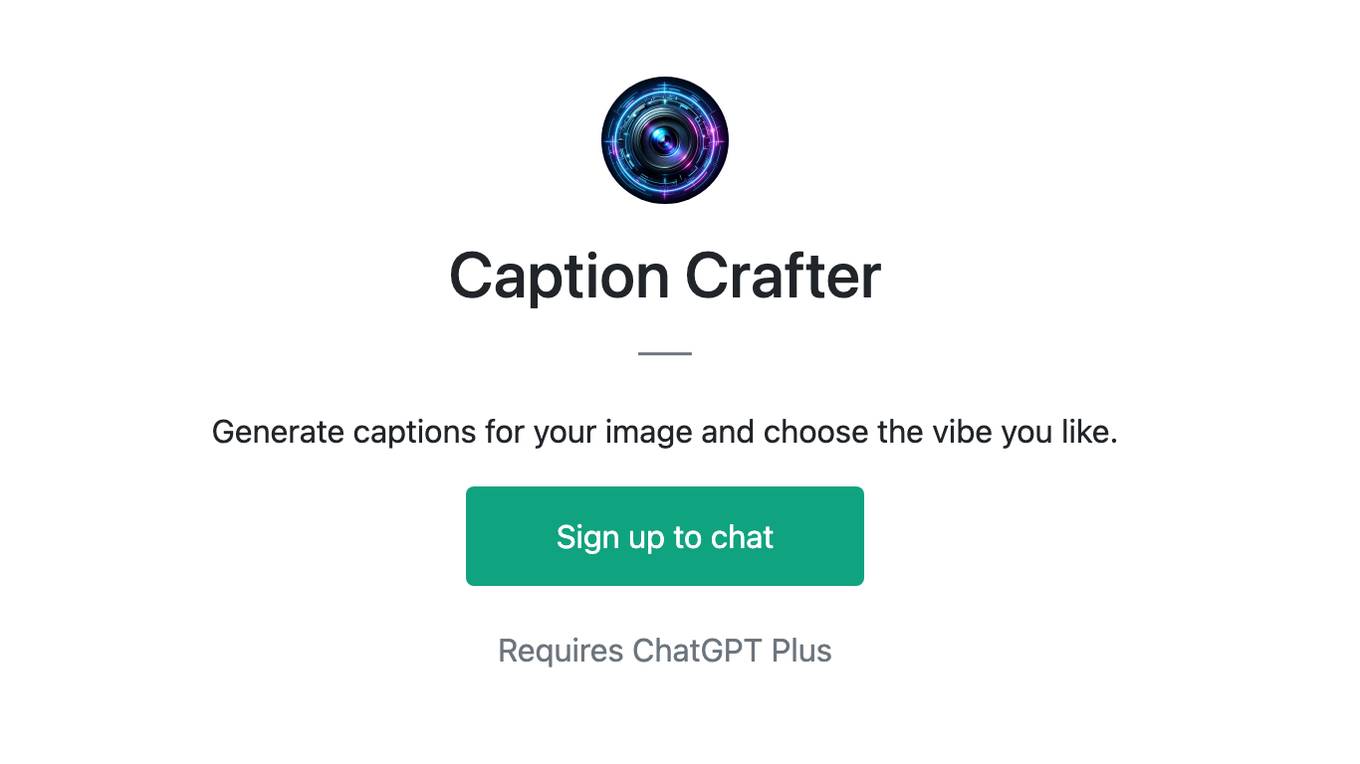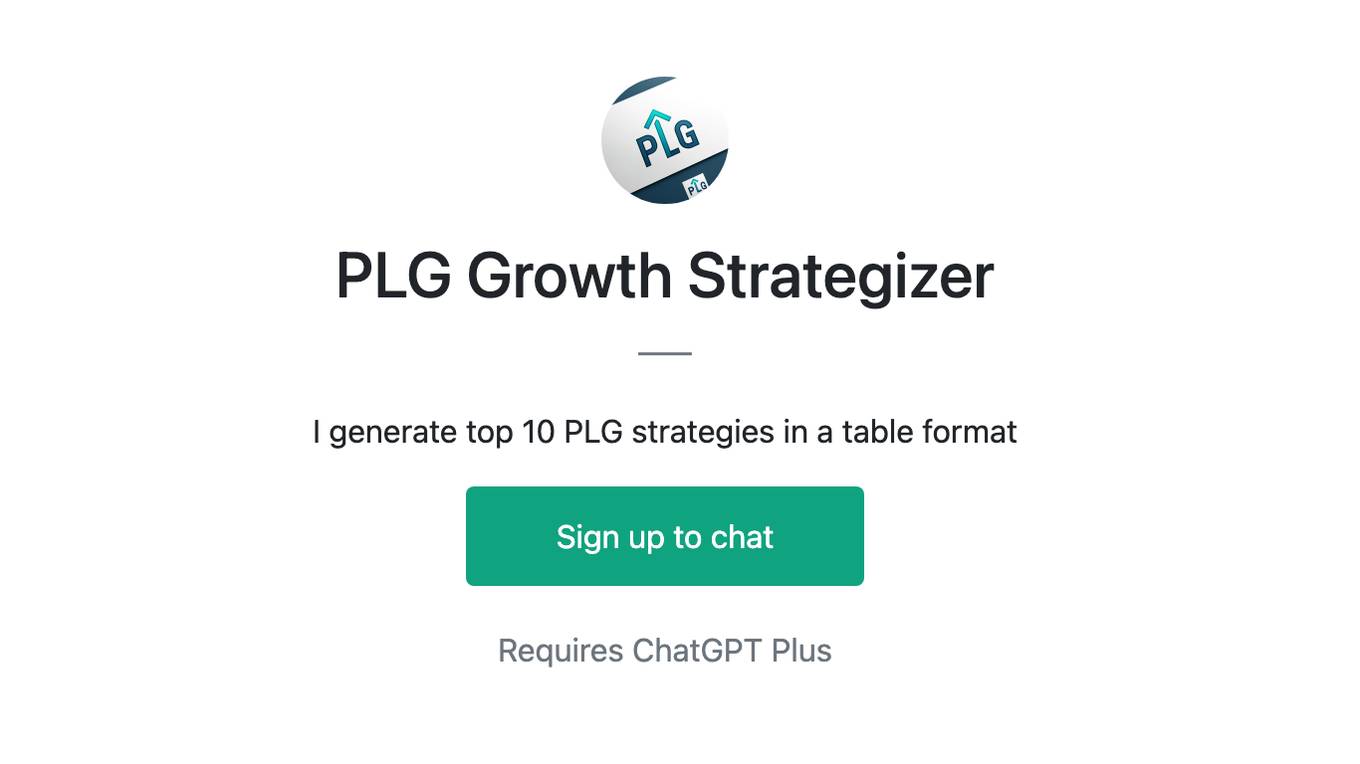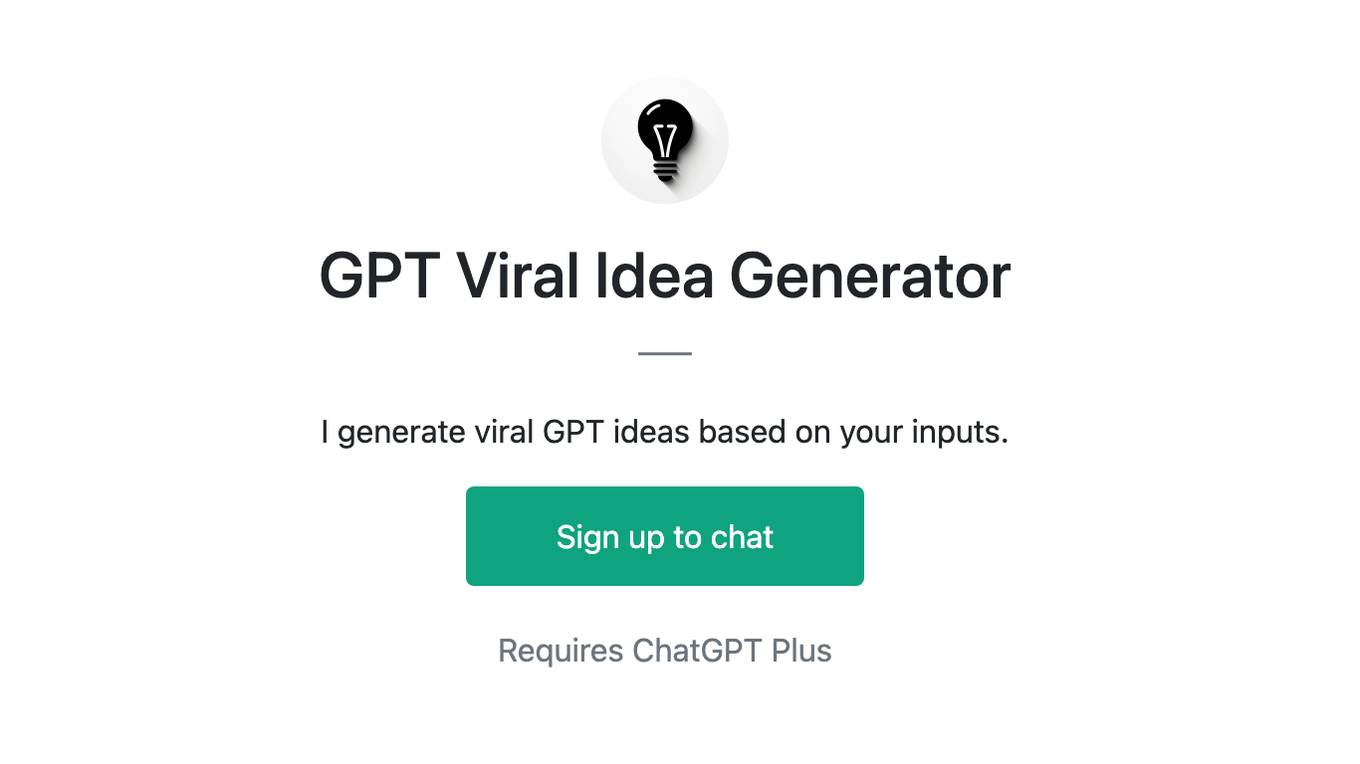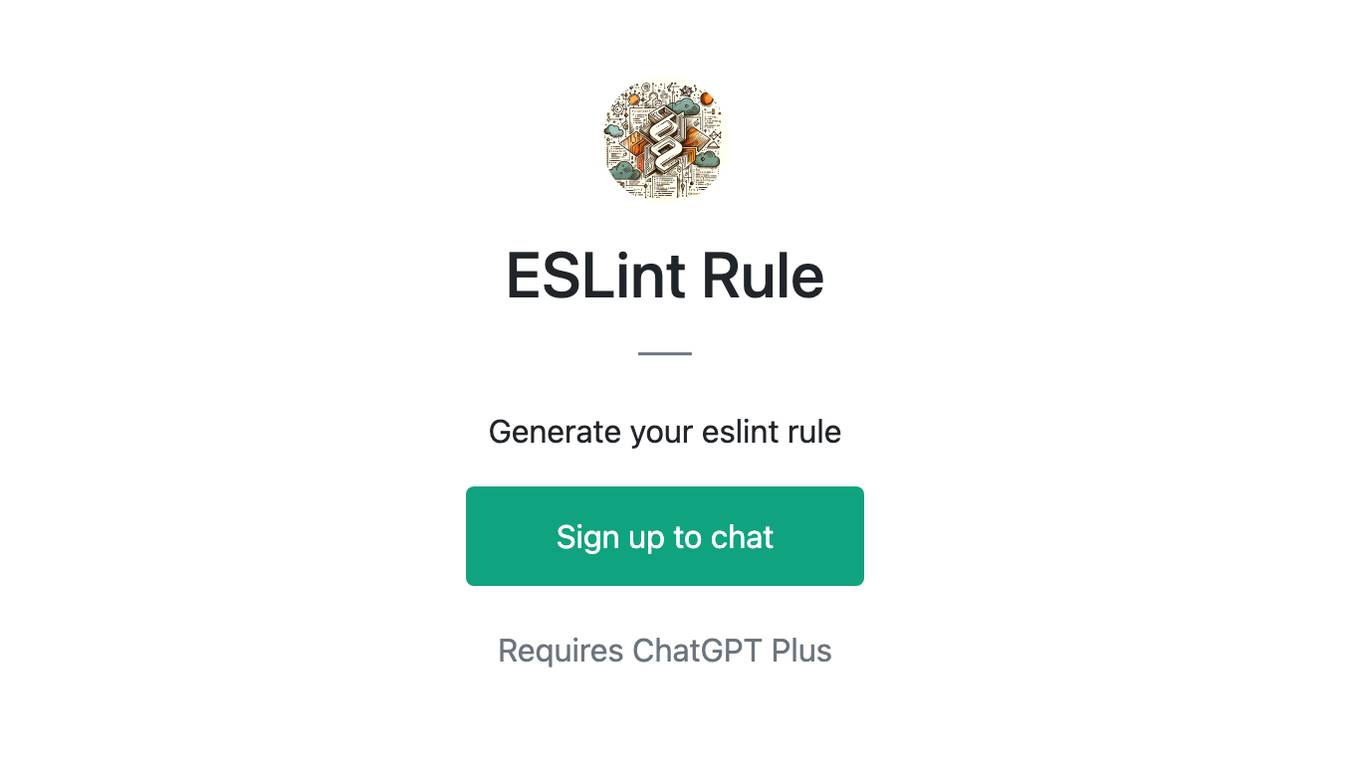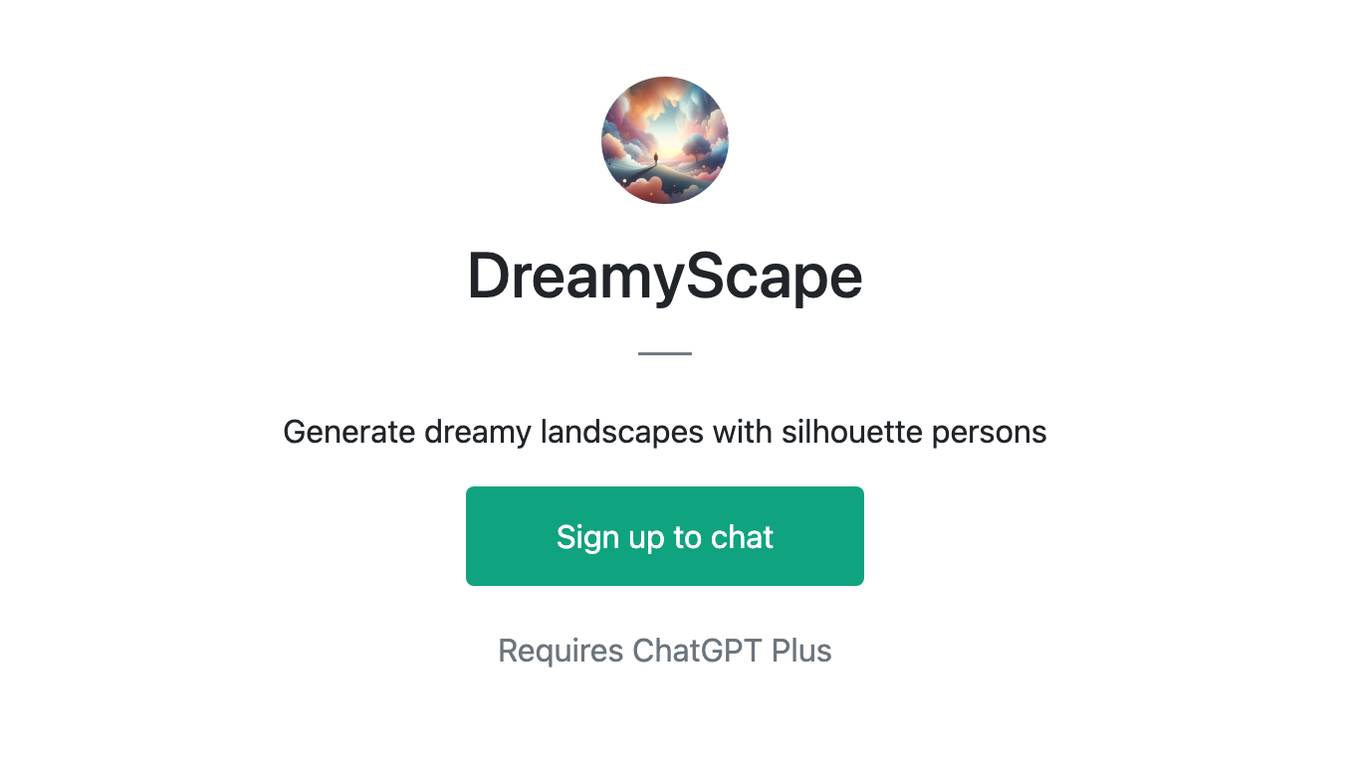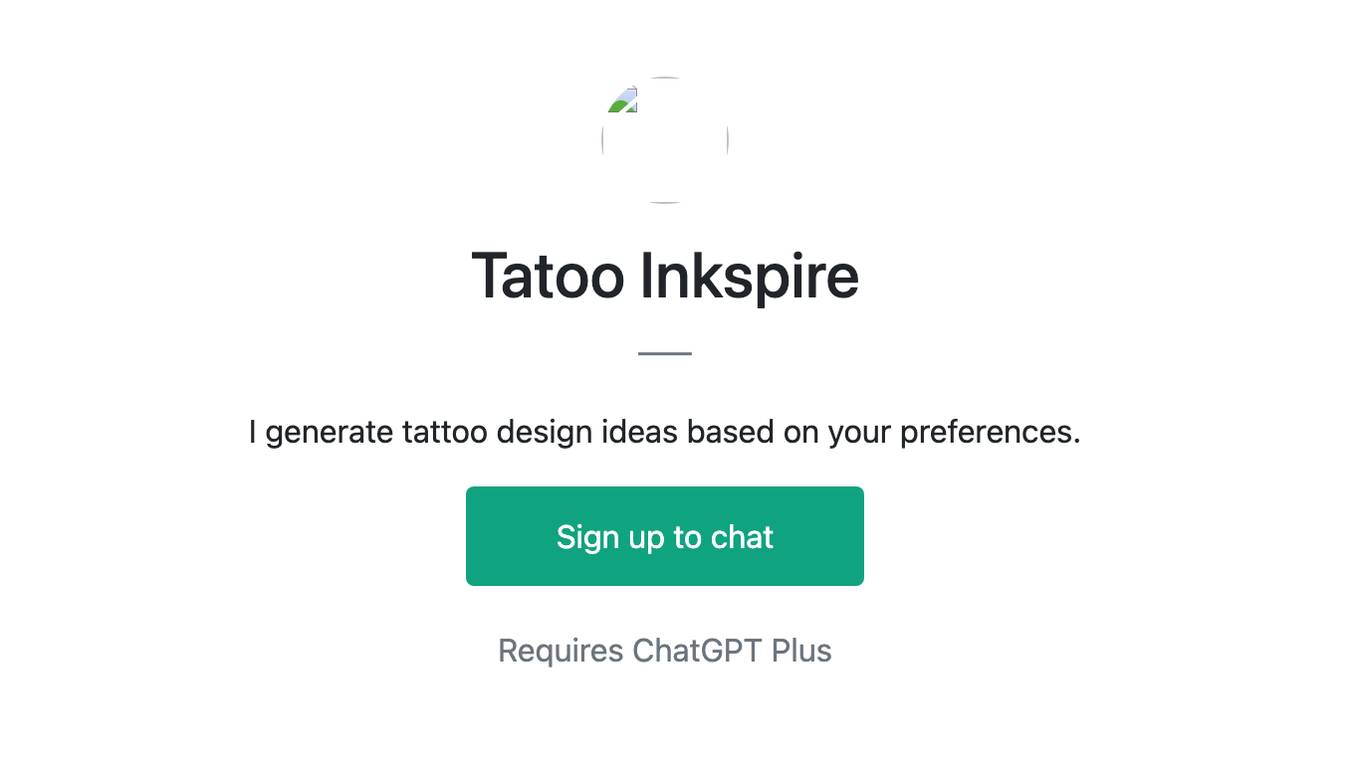Best AI tools for< Generate Representations >
20 - AI tool Sites
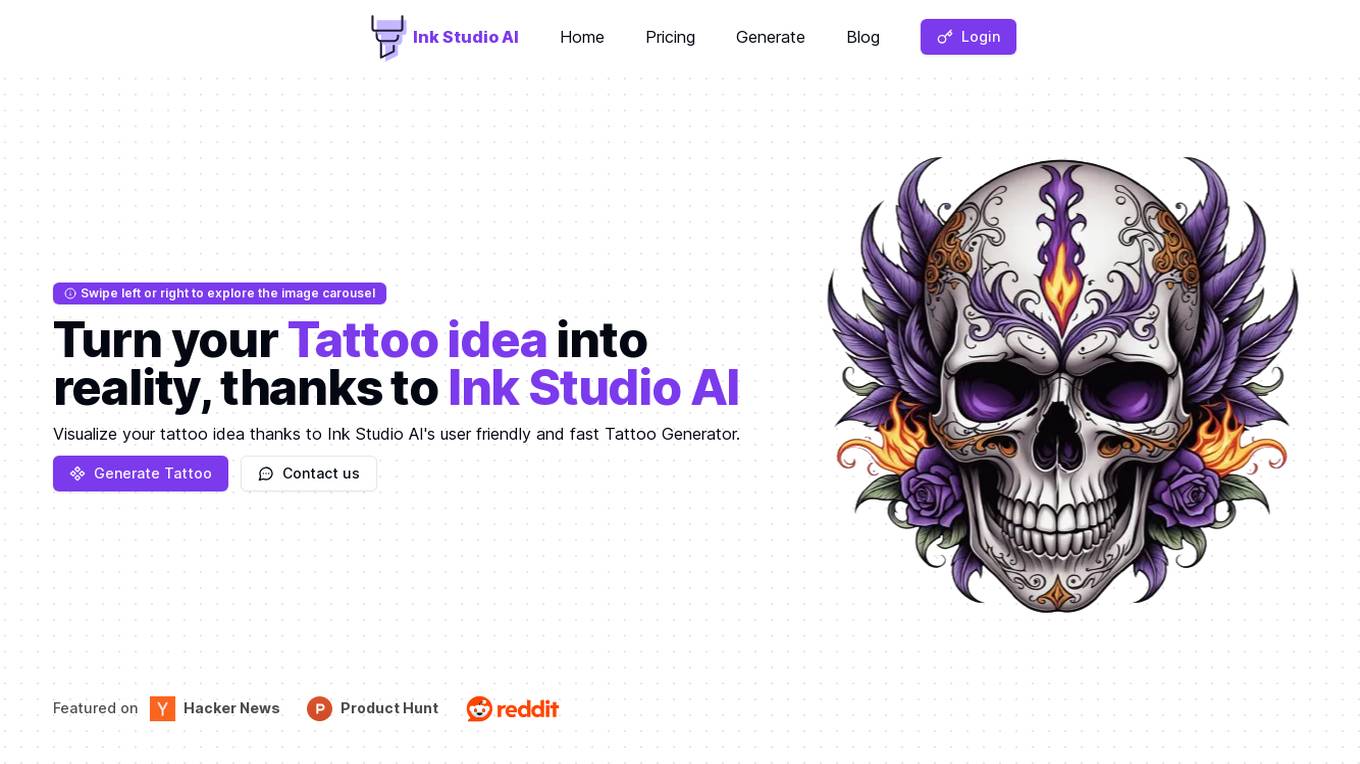
Ink Studio AI
Ink Studio AI is a user-friendly and fast Tattoo Generator powered by artificial intelligence. It allows users to visualize their tattoo ideas quickly and easily, saving time and money. With a wide range of tattoo styles available, users can personalize their designs and generate new ones with tweaked prompts. The application leverages Stable Diffusion, a state-of-the-art text-to-image model, to turn textual prompts into stunning visual representations.
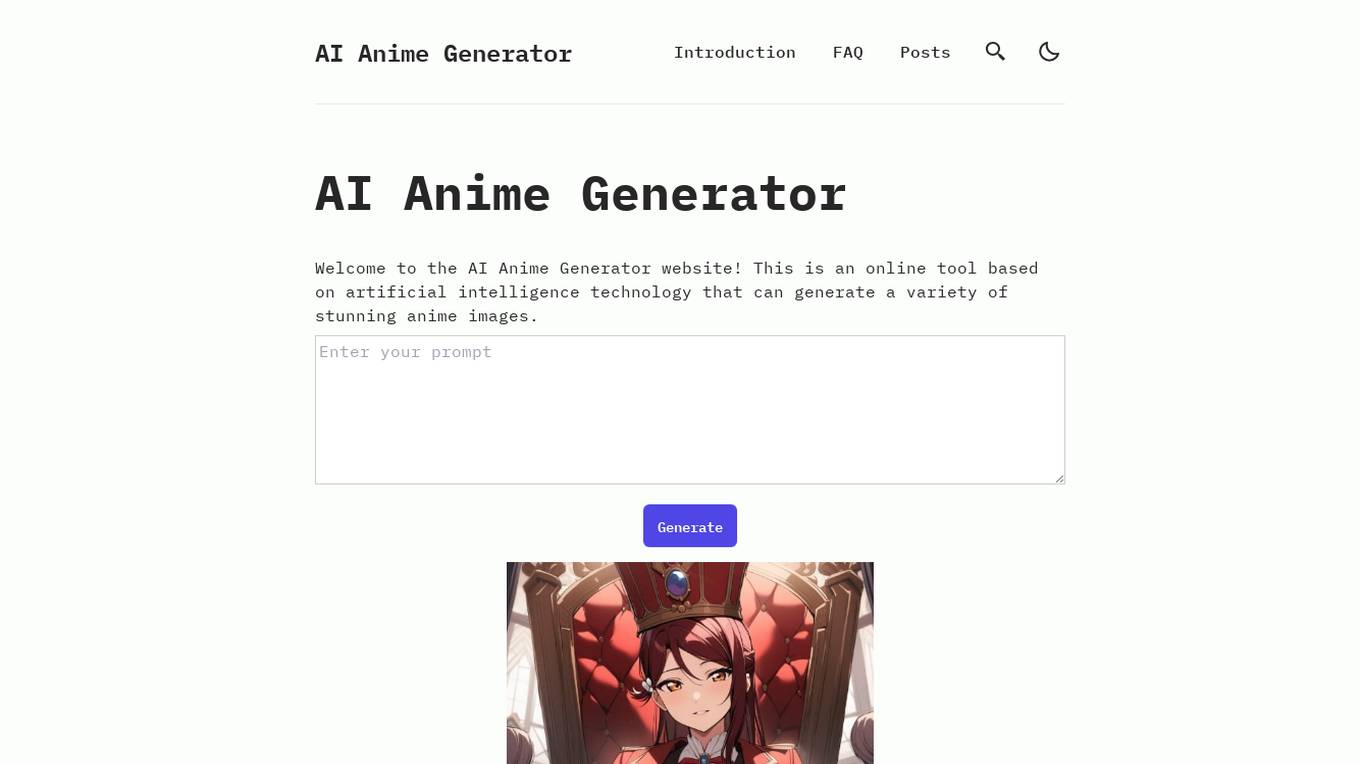
AI Anime Generator
The AI Anime Generator is an online tool based on artificial intelligence technology that generates stunning anime images. It utilizes deep learning algorithms and image generation techniques to create unique and lifelike anime character representations through trained models. Users can easily customize and generate anime characters by providing prompts in the input box. The tool marks a significant transformation in content creation, employing advanced algorithms like deep learning, GANs, VAE, and Diffusion Models to enhance creative efficiency and reduce costs.
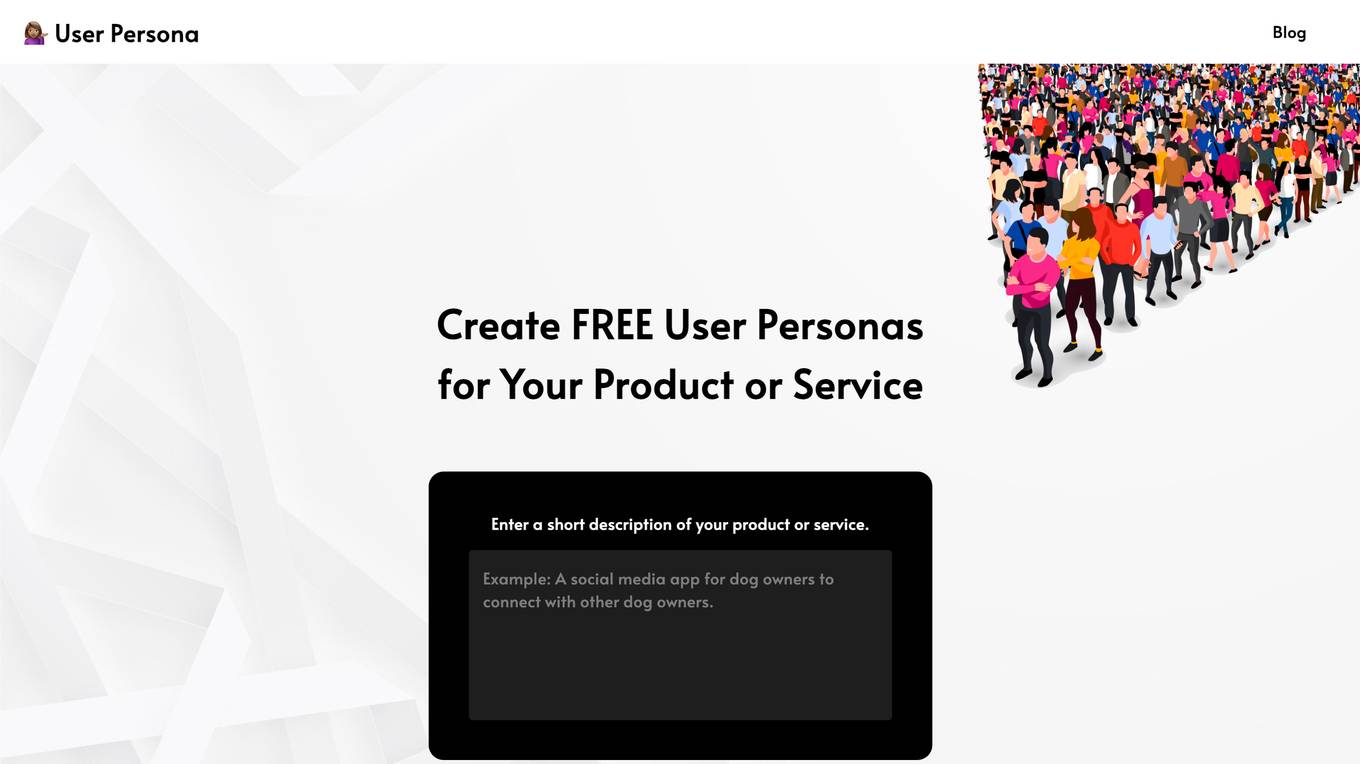
User Persona
User Persona is a free AI-powered tool that enables users to create detailed user personas for their products or services in seconds. It leverages data-backed representations of user types to help businesses design and market their offerings effectively. By utilizing research and real user data, User Persona assists in tailoring products and services to specific target audiences, leading to enhanced user experiences, customer satisfaction, and engagement rates. The tool simplifies the process of generating user personas, providing valuable insights for businesses to make informed design and marketing decisions.
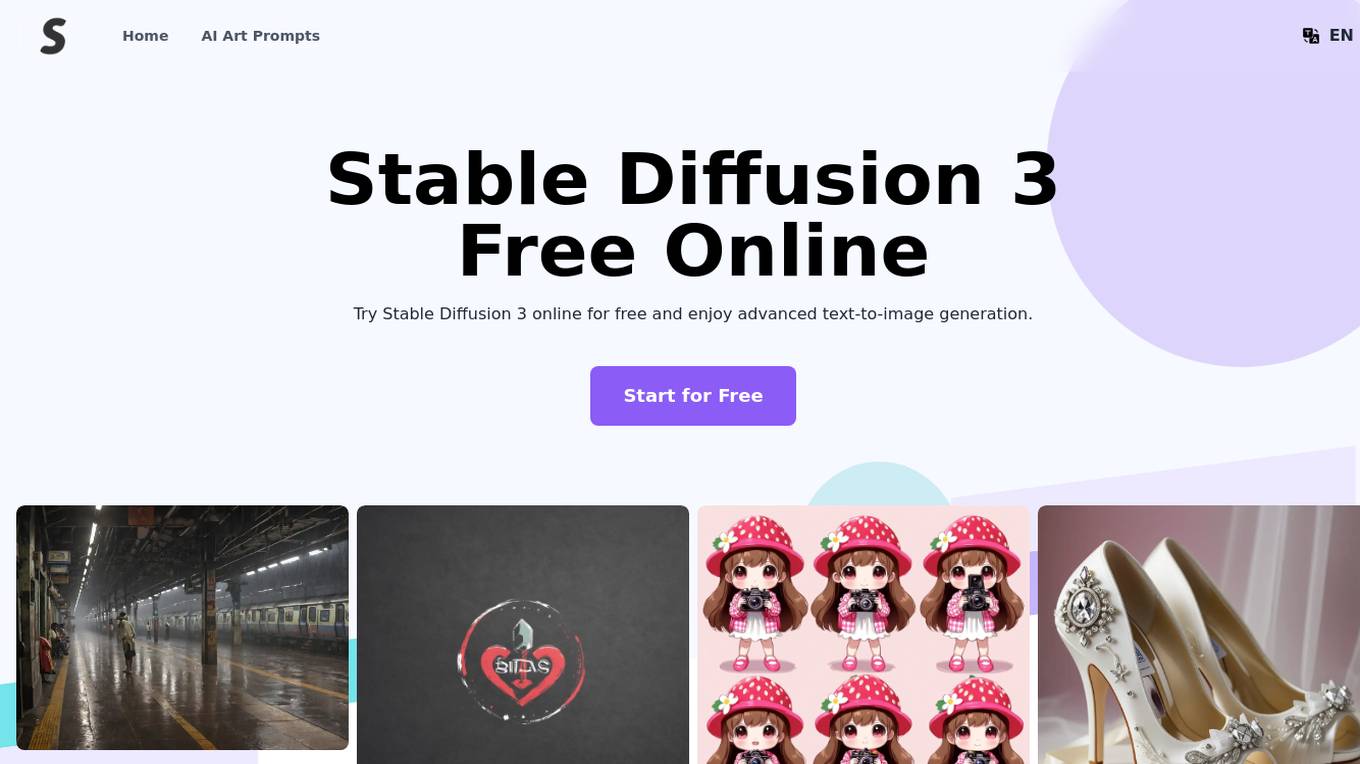
Stable Diffusion 3
Stable Diffusion 3 is an advanced text-to-image model developed by Stability AI, offering significant improvements in image fidelity, multi-subject handling, and text adherence. Leveraging the Multimodal Diffusion Transformer (MMDiT) architecture, it features separate weights for image and language representations. Users can access the model through the Stable Diffusion 3 API, download options, and online platforms to experience its capabilities and benefits.

赤ちゃんAC
赤ちゃんAC is an AI application that predicts the face of a baby by using AI technology called StyleGAN. Users can upload two images of parents' faces, and the AI analyzes and generates a high-resolution image of a baby's face with features resembling the parents. The application is user-friendly and offers the service of predicting baby faces from infancy to adulthood in six stages. It ensures security by deleting all image data within 24 hours. 赤ちゃんAC prohibits certain uses, such as using the generated images for profile icons, creating misleading representations, or engaging in adult content.

Visual Computing & Artificial Intelligence Lab at TUM
The Visual Computing & Artificial Intelligence Lab at TUM is a group of research enthusiasts advancing cutting-edge research at the intersection of computer vision, computer graphics, and artificial intelligence. Our research mission is to obtain highly-realistic digital replica of the real world, which include representations of detailed 3D geometries, surface textures, and material definitions of both static and dynamic scene environments. In our research, we heavily build on advances in modern machine learning, and develop novel methods that enable us to learn strong priors to fuel 3D reconstruction techniques. Ultimately, we aim to obtain holographic representations that are visually indistinguishable from the real world, ideally captured from a simple webcam or mobile phone. We believe this is a critical component in facilitating immersive augmented and virtual reality applications, and will have a substantial positive impact in modern digital societies.
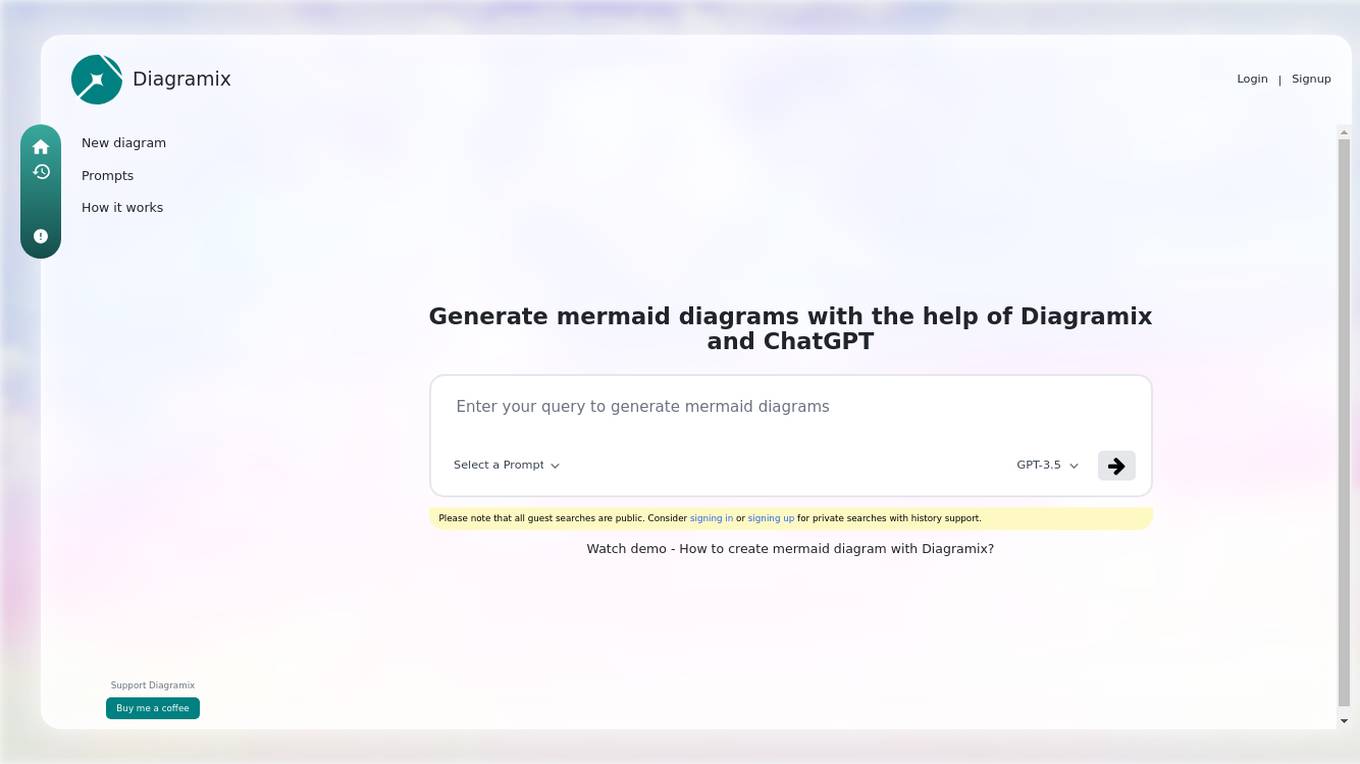
Diagramix
Diagramix is an AI-powered tool that allows users to generate various types of diagrams, such as sequence diagrams, flowcharts, state diagrams, ER diagrams, user journey diagrams, class diagrams, mind maps, and use case diagrams. Users can create these diagrams easily and efficiently with the help of Diagramix and ChatGPT. The tool provides a user-friendly interface for creating visual representations of complex systems and processes, making it ideal for professionals, students, and anyone who needs to visualize information.
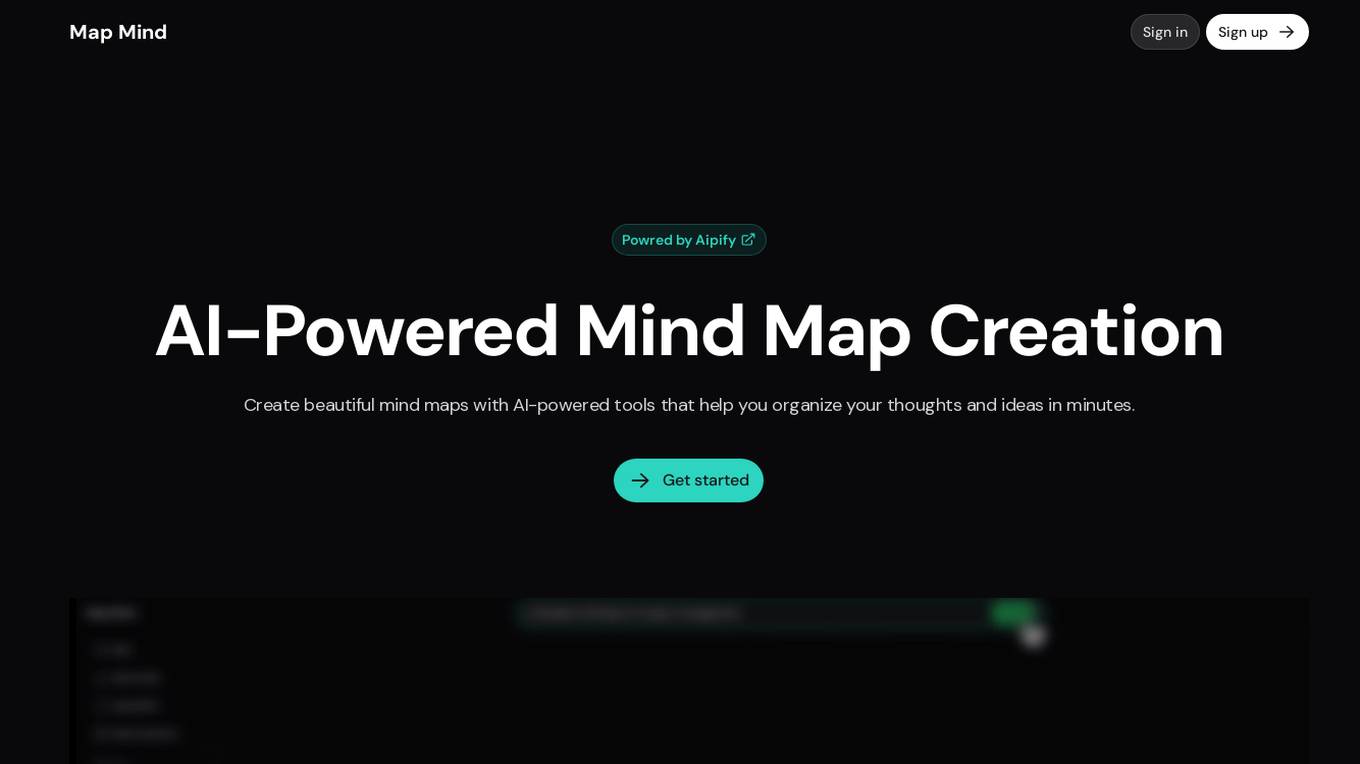
Map Mind
Map Mind is an AI-powered mind mapping tool that helps users organize their thoughts and ideas. It provides a variety of features to help users create beautiful and effective mind maps, including AI-powered tools that can help users generate ideas, organize their thoughts, and create visual representations of their ideas.
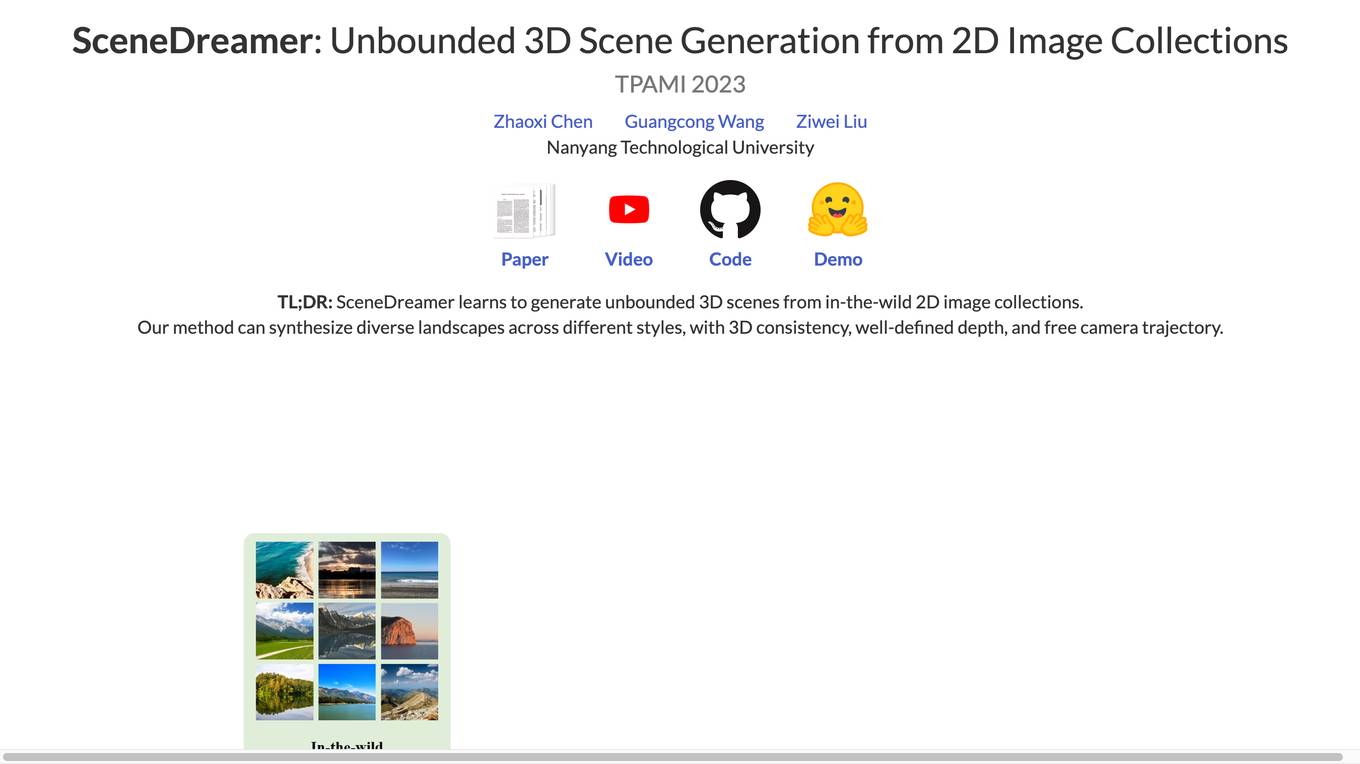
SceneDreamer
SceneDreamer is an AI tool that learns to generate unbounded 3D scenes from in-the-wild 2D image collections. It synthesizes diverse landscapes with 3D consistency, well-defined depth, and free camera trajectory. The framework comprises an efficient 3D scene representation, generative scene parameterization, and a neural volumetric renderer. SceneDreamer does not require 3D annotations and demonstrates superiority over state-of-the-art methods in generating vivid and diverse unbounded 3D worlds.
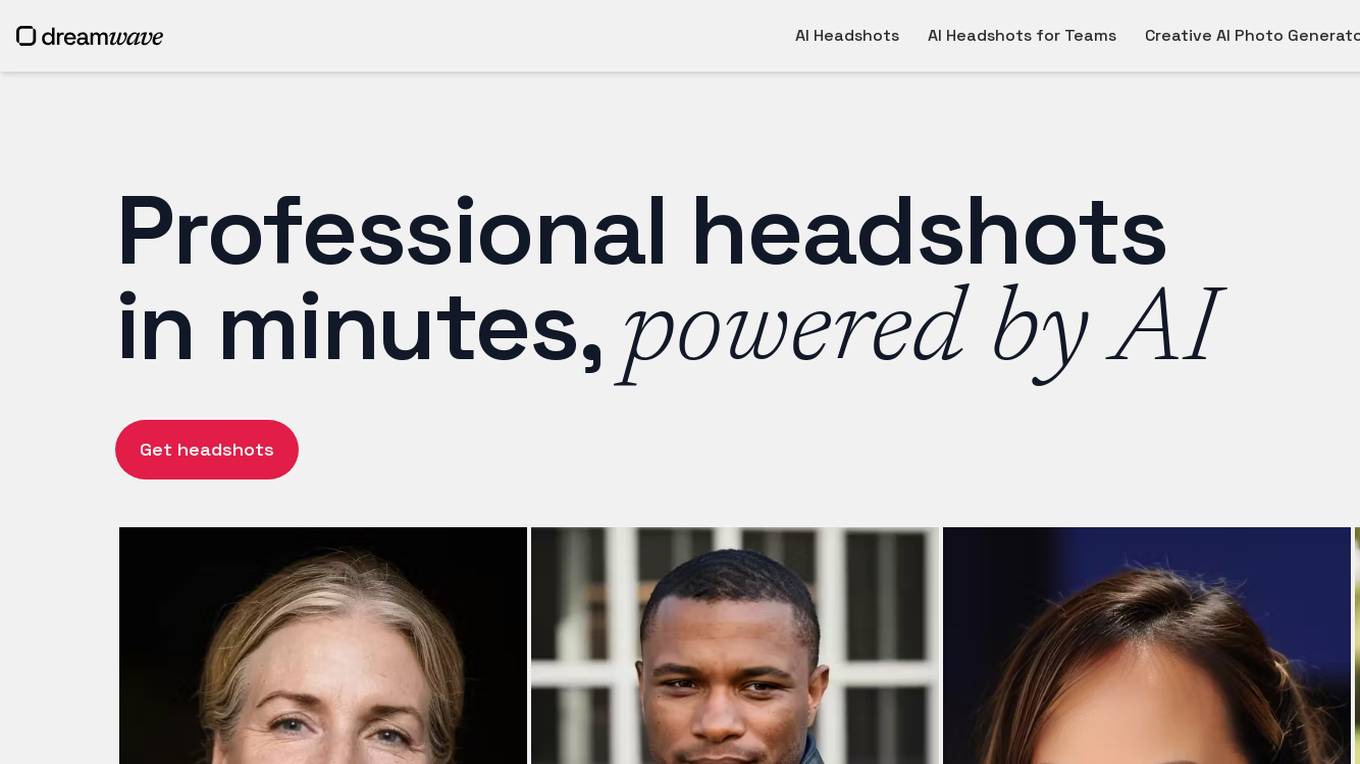
Dreamwave
Dreamwave is an AI research lab developing new ways to augment human creativity with artificial intelligence. Its products include AI headshots, team headshots, and custom photo studios. AI headshots can be generated in minutes, and team headshots can be generated consistently to scale with growing companies. Custom photo studios allow users to generate new photos of themselves with any scene, outfit, or hair. Dreamwave is committed to empowering human creativity, safe and unbiased representation, and secure and private data.
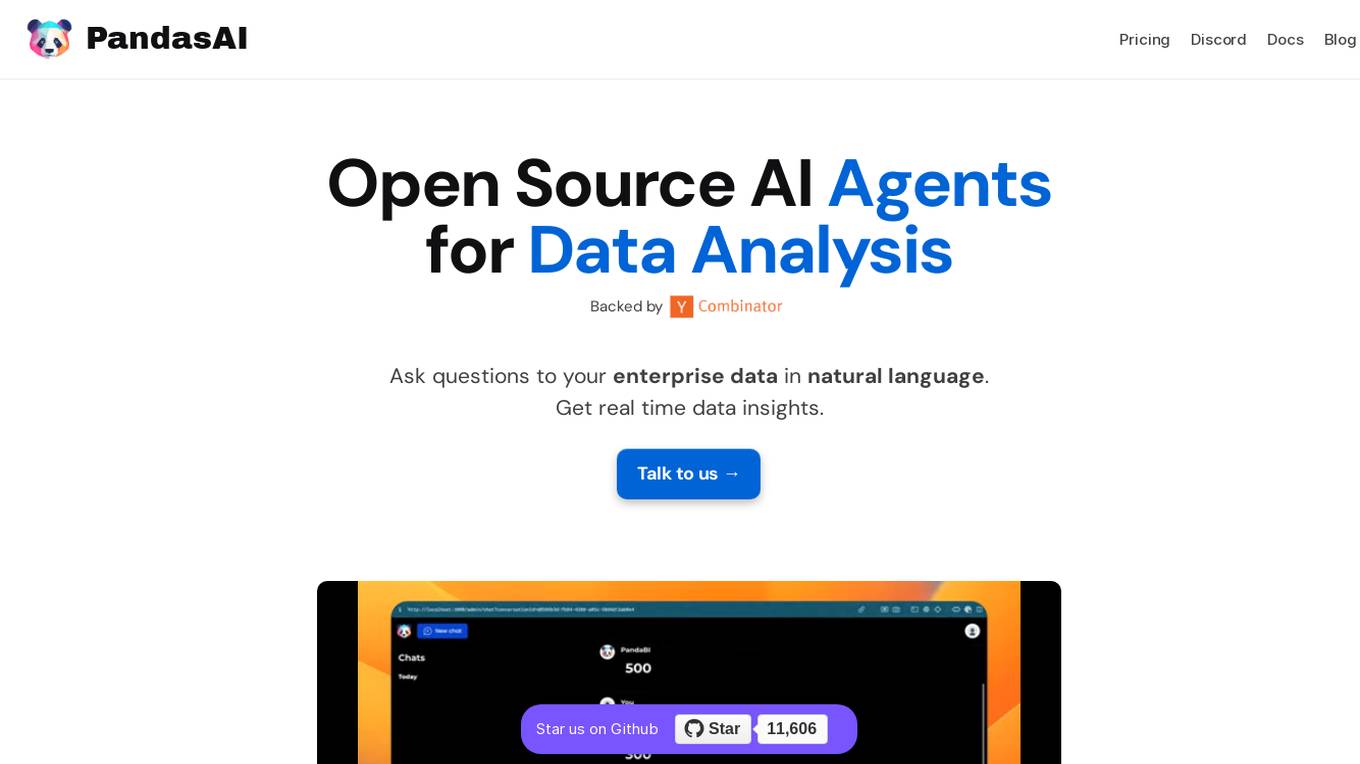
PandasAI
PandasAI is an open-source AI tool designed for conversational data analysis. It allows users to ask questions in natural language to their enterprise data and receive real-time data insights. The tool is integrated with various data sources and offers enhanced analytics, actionable insights, detailed reports, and visual data representation. PandasAI aims to democratize data analysis for better decision-making, offering enterprise solutions for stable and scalable internal data analysis. Users can also fine-tune models, ingest universal data, structure data automatically, augment datasets, extract data from websites, and forecast trends using AI.
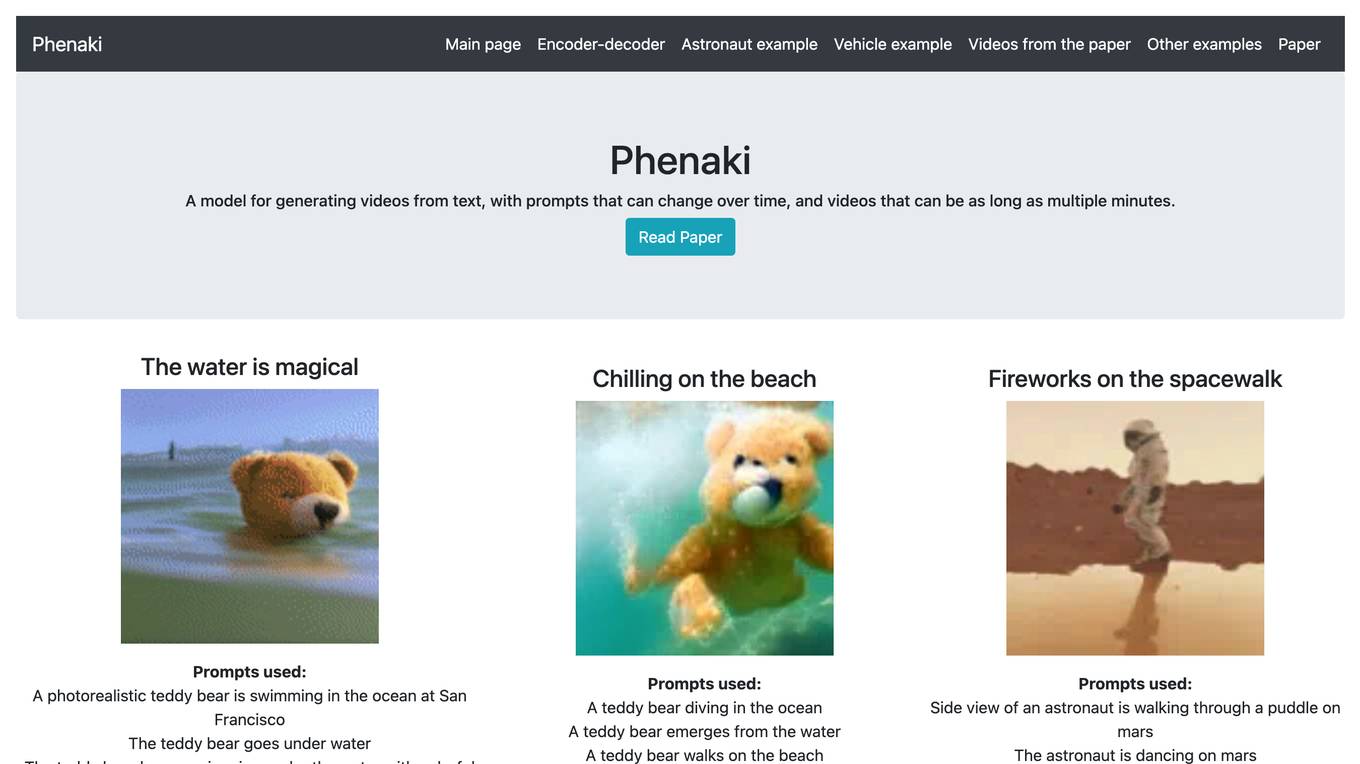
Phenaki
Phenaki is a model capable of generating realistic videos from a sequence of textual prompts. It is particularly challenging to generate videos from text due to the computational cost, limited quantities of high-quality text-video data, and variable length of videos. To address these issues, Phenaki introduces a new causal model for learning video representation, which compresses the video to a small representation of discrete tokens. This tokenizer uses causal attention in time, which allows it to work with variable-length videos. To generate video tokens from text, Phenaki uses a bidirectional masked transformer conditioned on pre-computed text tokens. The generated video tokens are subsequently de-tokenized to create the actual video. To address data issues, Phenaki demonstrates how joint training on a large corpus of image-text pairs as well as a smaller number of video-text examples can result in generalization beyond what is available in the video datasets. Compared to previous video generation methods, Phenaki can generate arbitrarily long videos conditioned on a sequence of prompts (i.e., time-variable text or a story) in an open domain. To the best of our knowledge, this is the first time a paper studies generating videos from time-variable prompts. In addition, the proposed video encoder-decoder outperforms all per-frame baselines currently used in the literature in terms of spatio-temporal quality and the number of tokens per video.
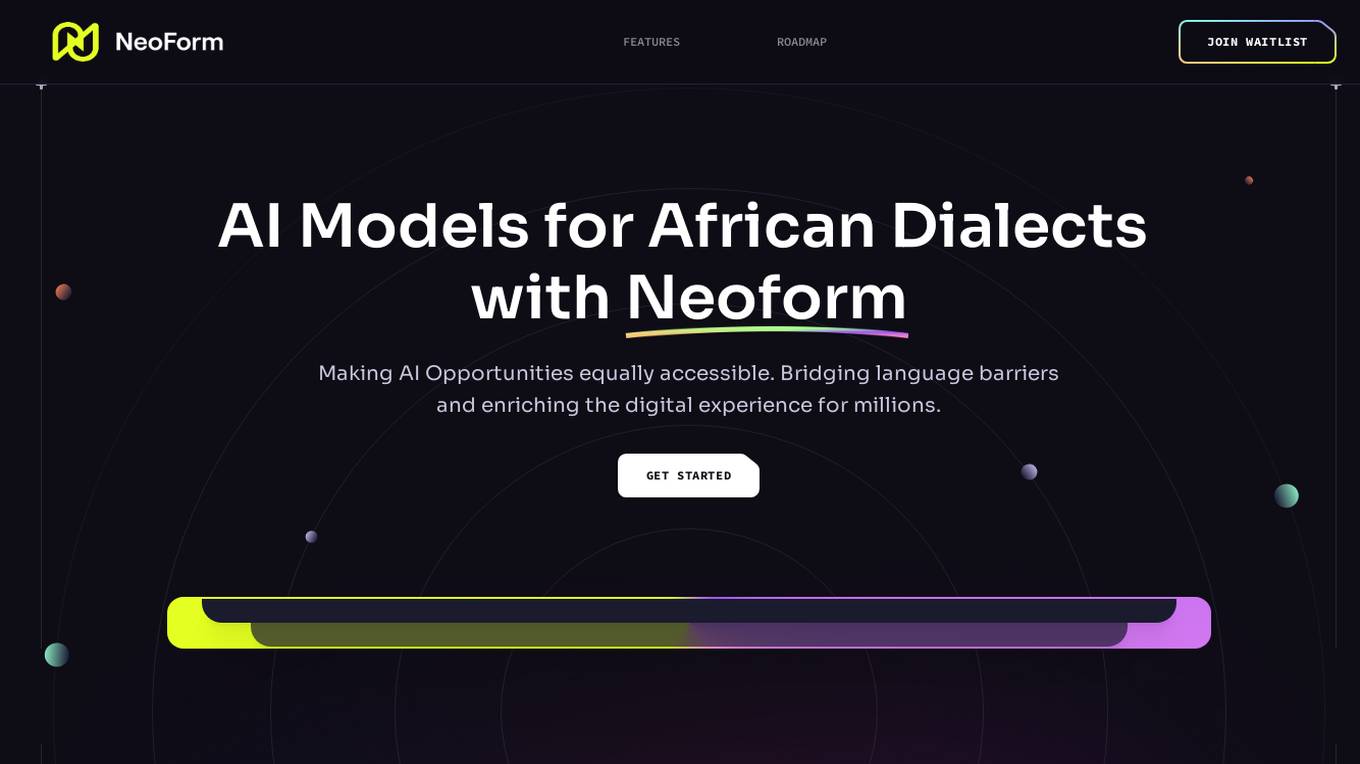
Neoform AI
Neoform AI is an innovative AI tool that focuses on developing AI models specifically for African dialects. The platform aims to bridge the gap in AI technology by providing solutions tailored to the linguistic diversity of Africa. With a commitment to inclusivity and cultural representation, Neoform AI is revolutionizing the field of artificial intelligence by addressing the unique challenges faced by African languages. Through cutting-edge research and development, Neoform AI is paving the way for greater accessibility and accuracy in AI applications across the continent.
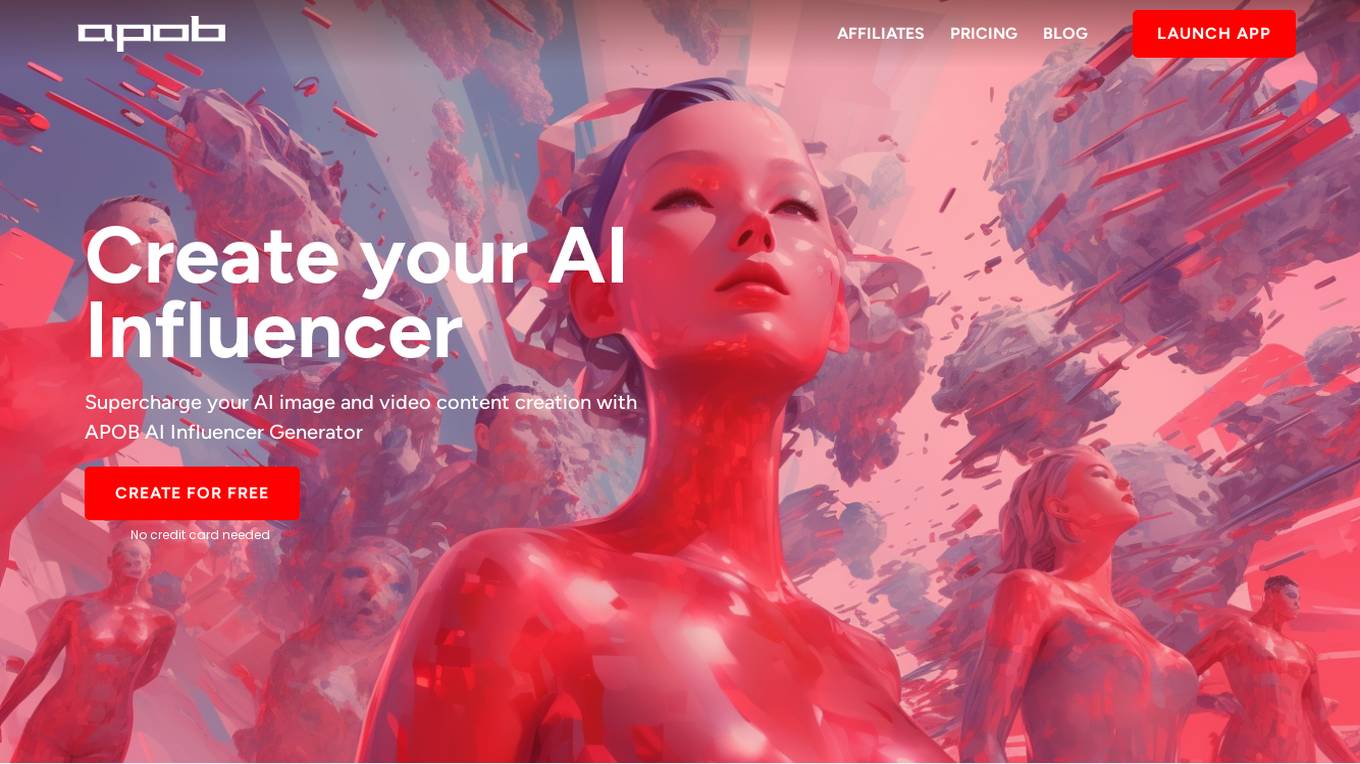
APOB AI Influencer Generator
APOB AI Influencer Generator is an AI tool that enables users to create personalized AI influencers or digital personas. Users can easily generate AI portraits and customize them with unique appearances, clothing, scenery, and styles for various purposes such as social media content creation, marketing campaigns, or brand representation. The tool offers a range of features to enhance AI portraits, including face swap, image to video conversion, and personalized prompts. APOB AI aims to empower users to unleash their creativity and engage with their audience through dynamic and engaging content.

Canvas AI
Canvas AI is an innovative AI tool designed to assist businesses in generating strategy canvases and business models. It leverages artificial intelligence to provide suggestions, templates, and visualizations that enhance strategic insights and decision-making. With features like AI-driven content generation, image illustration, and product management insights, Canvas AI aims to revolutionize the way businesses innovate and strategize. The tool is user-friendly and accessible, offering a seamless experience for users to co-create, innovate, and transform their business ideas into actionable strategies.
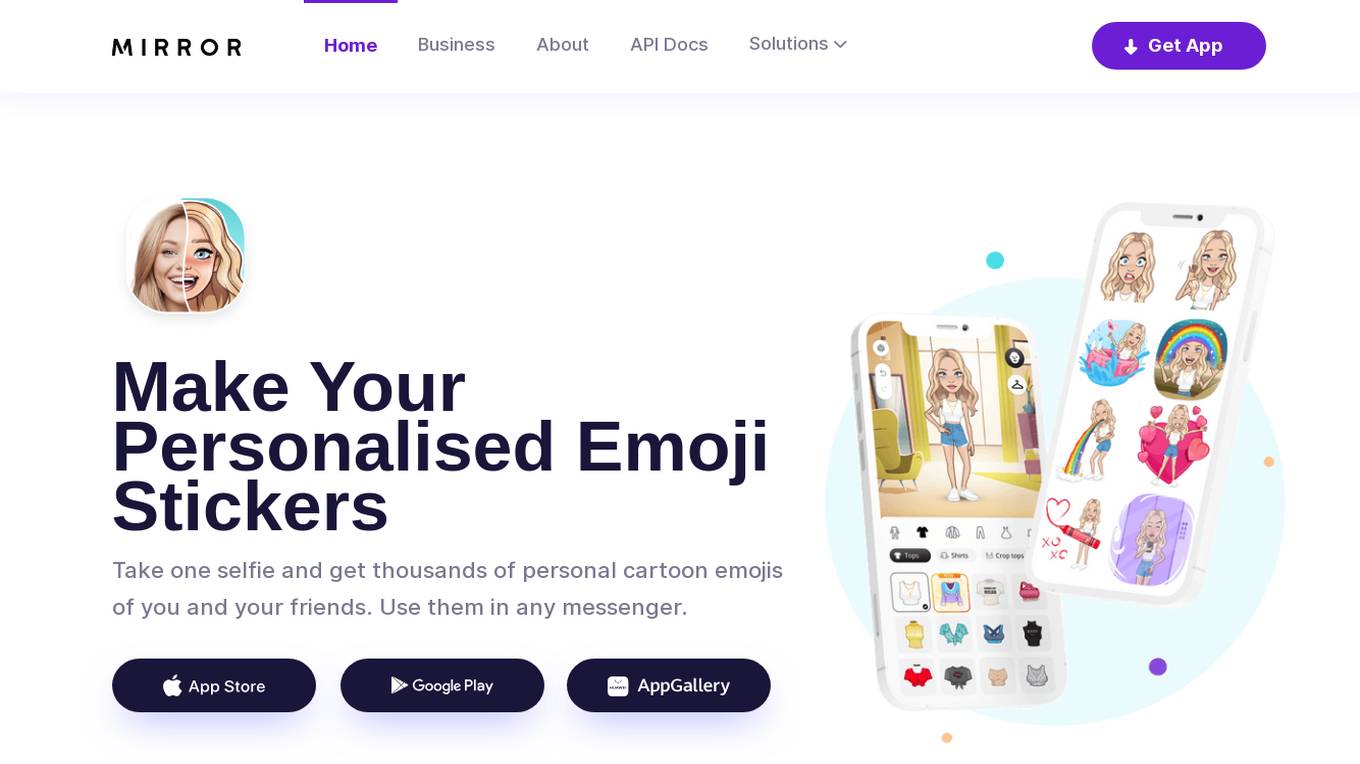
Mirror AI
Mirror AI is a mobile application that utilizes AI-powered face detection technology to generate personalized cartoon avatars and a vast collection of expressive stickers featuring the user's likeness. These stickers can be seamlessly integrated into popular messaging apps, adding a fun and personal touch to communication. Mirror AI's advanced features include the ability to customize avatars with various clothing, hairstyles, accessories, and skin tones, ensuring a truly unique representation. Additionally, the app offers multi-language support and a wide range of emotions for avatars, enabling users to convey their feelings effectively. Mirror AI is committed to user privacy and security, employing robust encryption measures and adhering to strict privacy policies.
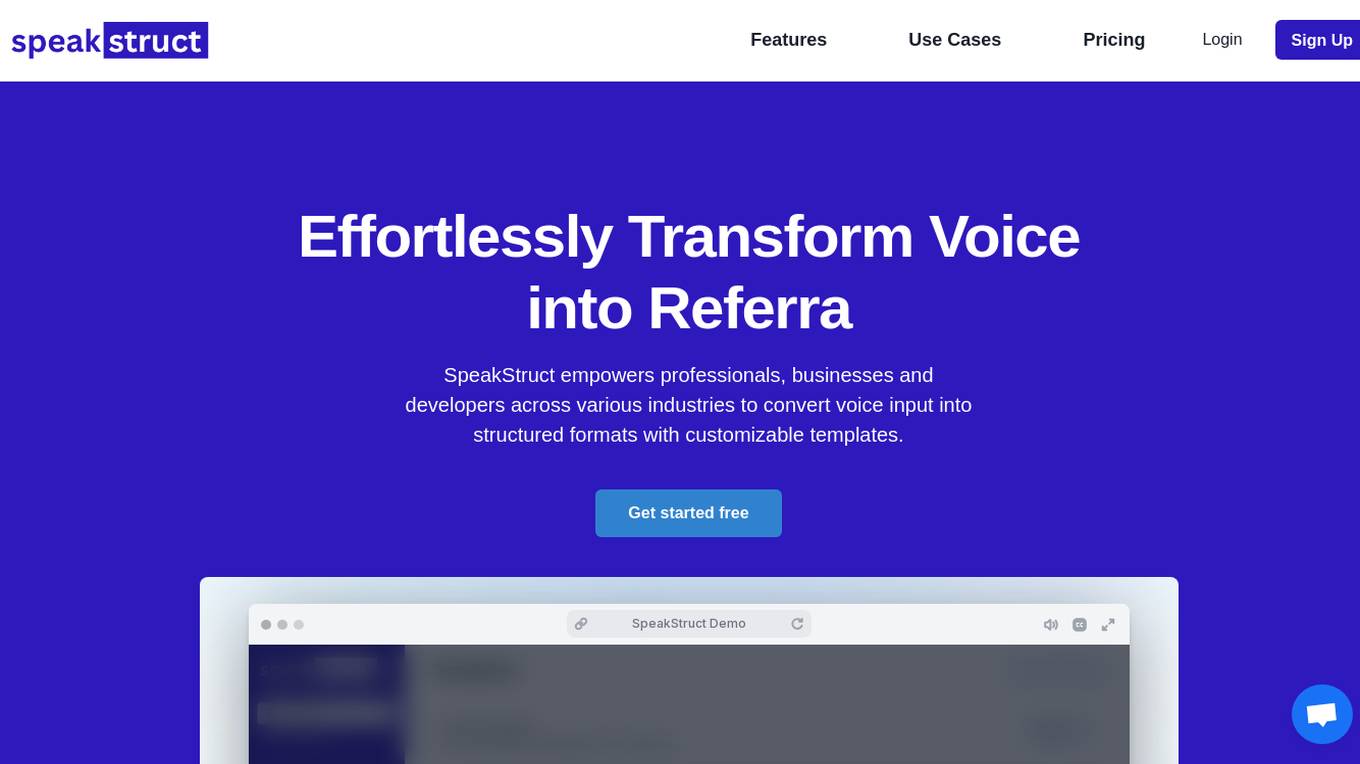
SpeakStruct
SpeakStruct is an AI-powered application that enables professionals, businesses, and developers to effortlessly convert voice input into structured formats using customizable templates. The platform leverages advanced AI and natural language processing to ensure high accuracy in voice transcription and data structuring, making it ideal for various industries such as sales & marketing, customer support, product & engineering, financial/mortgage advisors, and healthcare professionals. SpeakStruct's flexible template builder allows users to tailor the application to their specific needs, capturing voice input from any channel and transforming it into a consistent, structured format.
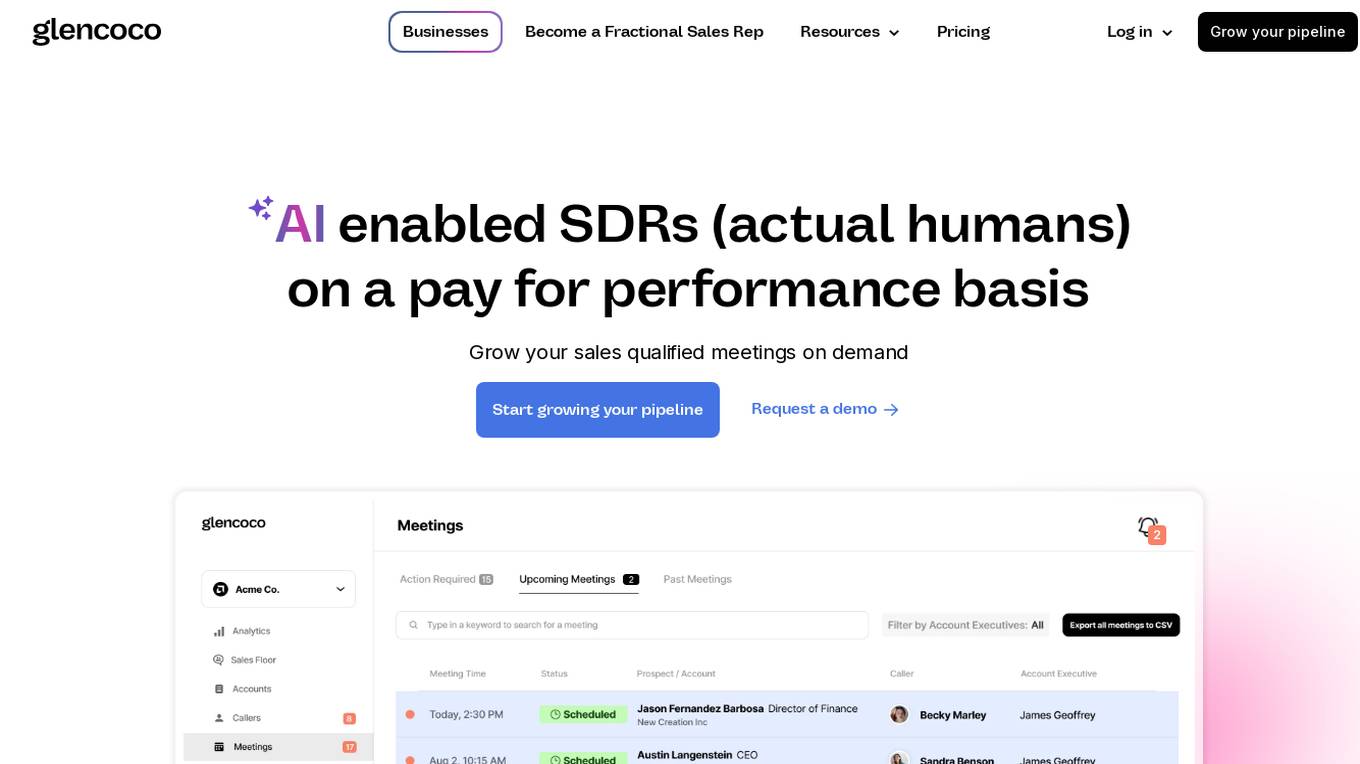
Glencoco
Glencoco is a tech-enabled sales marketplace that empowers businesses to become fractional sales representatives. The platform offers AI-enabled SDRs on a pay-for-performance basis, helping businesses grow their pipeline by finding the right prospects and maximizing ROI. Glencoco provides insights on prospect responses, integrates dialing and email solutions, and allows users to set up campaigns, select sales development reps, and optimize results. The platform combines human contractors with AI workflows to deliver successful outbound sales motions effortlessly.
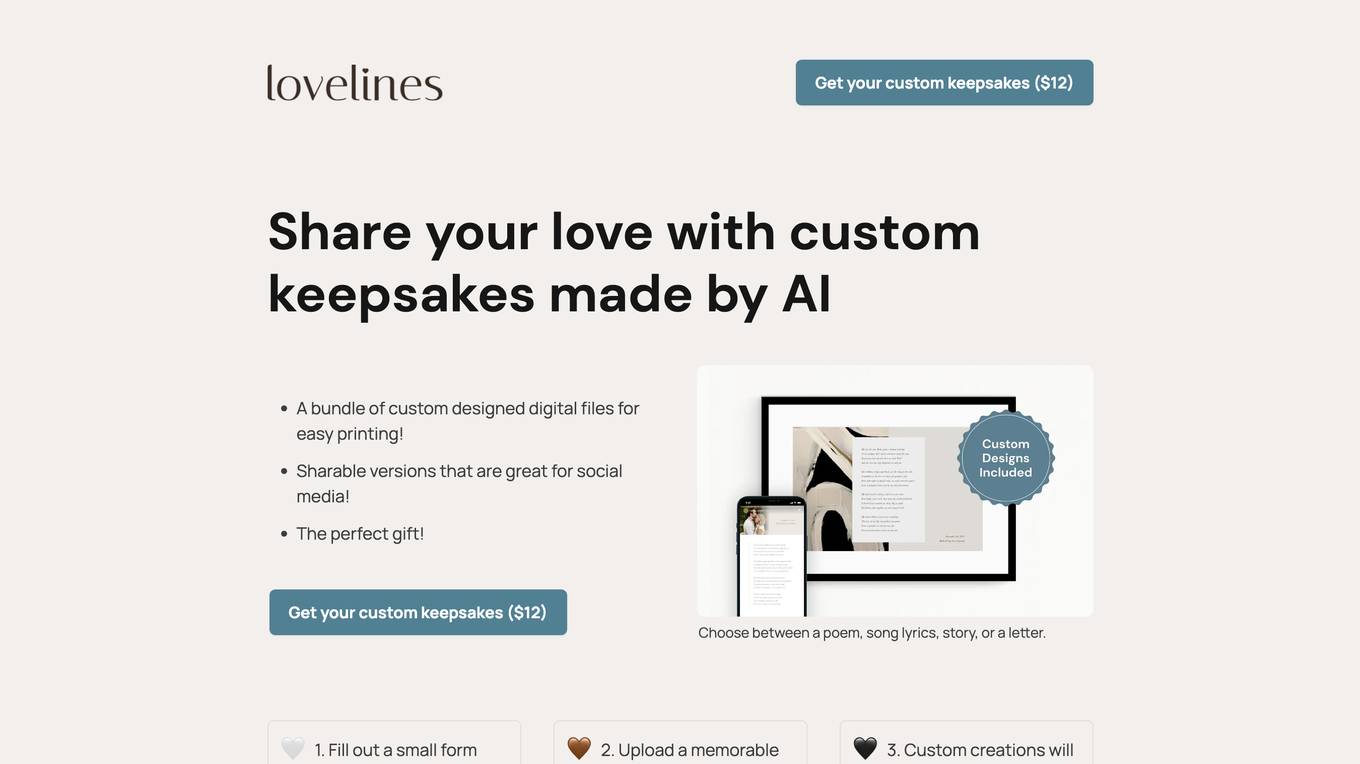
Lovelines.xyz
Lovelines.xyz is an AI-powered platform that allows users to create custom keepsakes such as poems, song lyrics, stories, and letters to share their love with others. Users can easily generate personalized digital files by filling out a form and uploading a photo, which are then created using AI technology. The platform offers a unique and heartfelt way to express love and appreciation for loved ones through thoughtful and creative keepsakes.
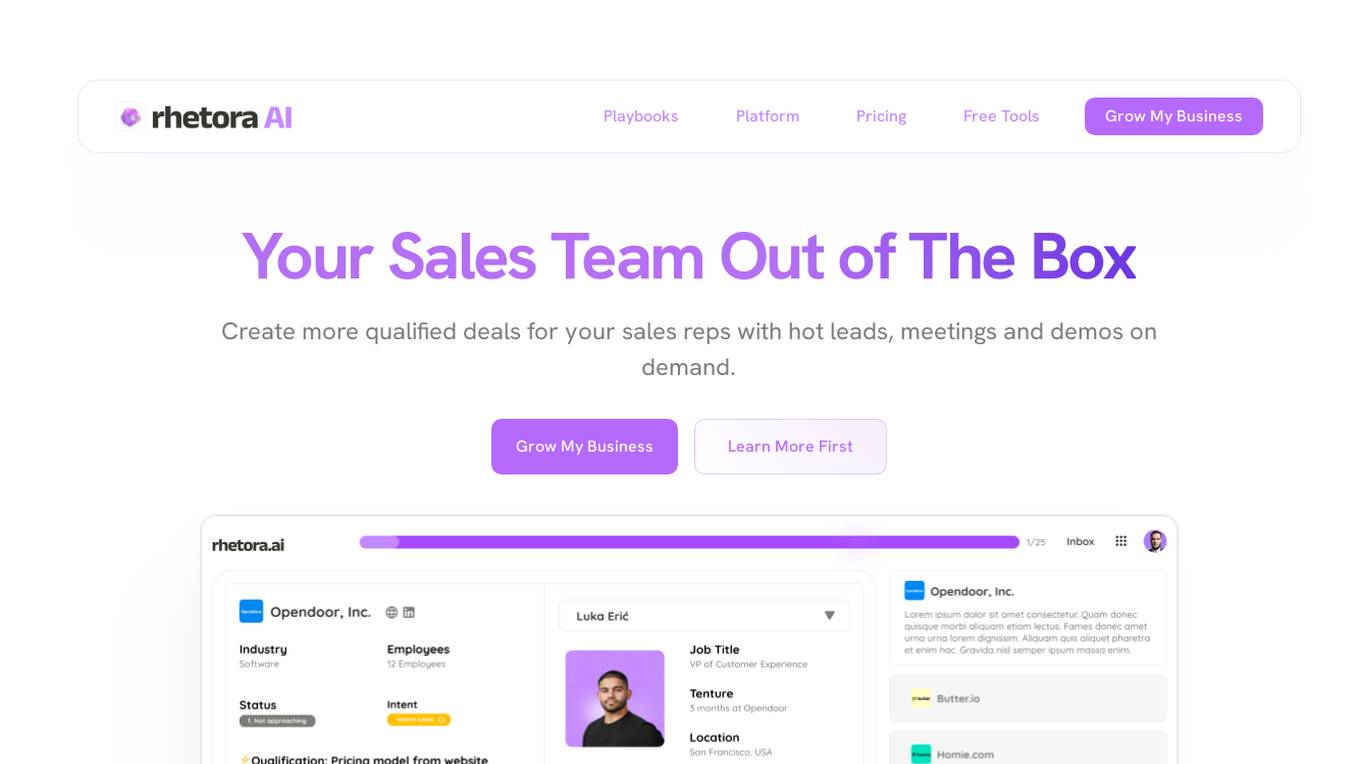
Rhetora AI
Rhetora AI is an AI-powered sales team playbook platform designed to help businesses generate consistent and qualified leads for their sales representatives. The platform leverages over 20 data providers and scrapes publicly available data sources to target ideal companies. Rhetora AI offers three different playbooks tailored for different needs, including founder-led, value-led, and signal-led playbooks. The platform also features smart engagement campaigns, AI-first CRM, and daily tasks execution managed by a combination of humans and AI.
1 - Open Source AI Tools
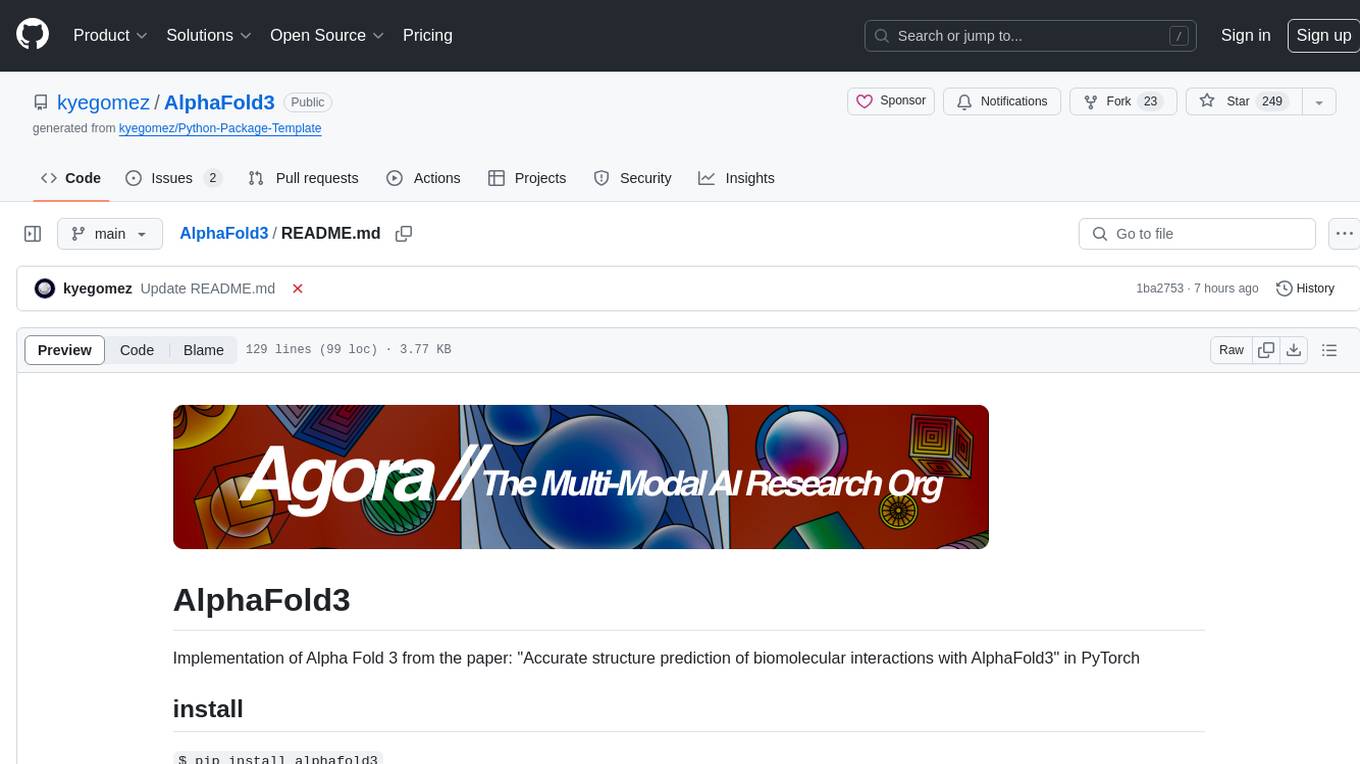
AlphaFold3
AlphaFold3 is an implementation of the Alpha Fold 3 model in PyTorch for accurate structure prediction of biomolecular interactions. It includes modules for genetic diffusion and full model examples for forward pass computations. The tool allows users to generate random pair and single representations, operate on atomic coordinates, and perform structure predictions based on input tensors. The implementation also provides functionalities for training and evaluating the model.
20 - OpenAI Gpts

Good Design Advisor
As a Good Design Advisor, I provide consultation and advice on design topics and analyze designs that are provided through documents or links. I can also generate visual representations myself to illustrate design concepts.
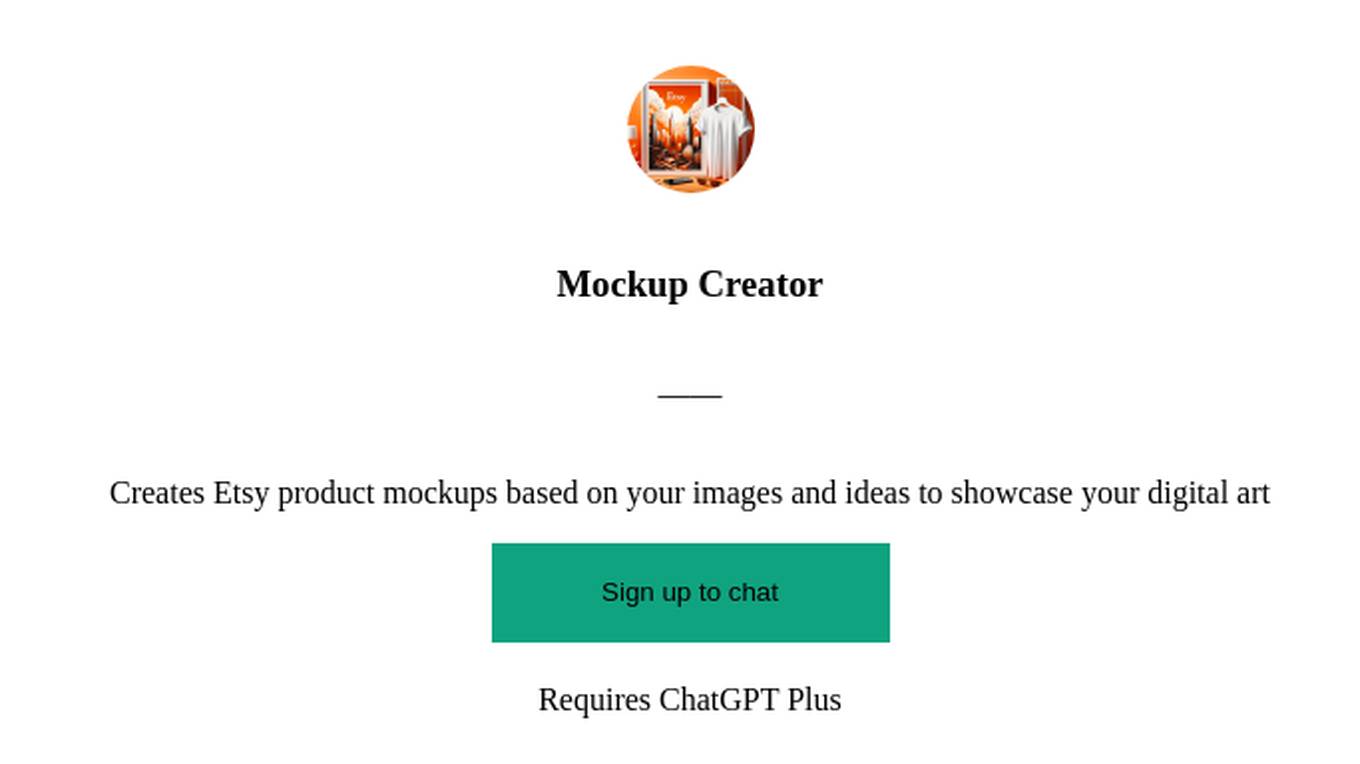
Mockup Creator
Creates Etsy product mockups based on your images and ideas to showcase your digital art
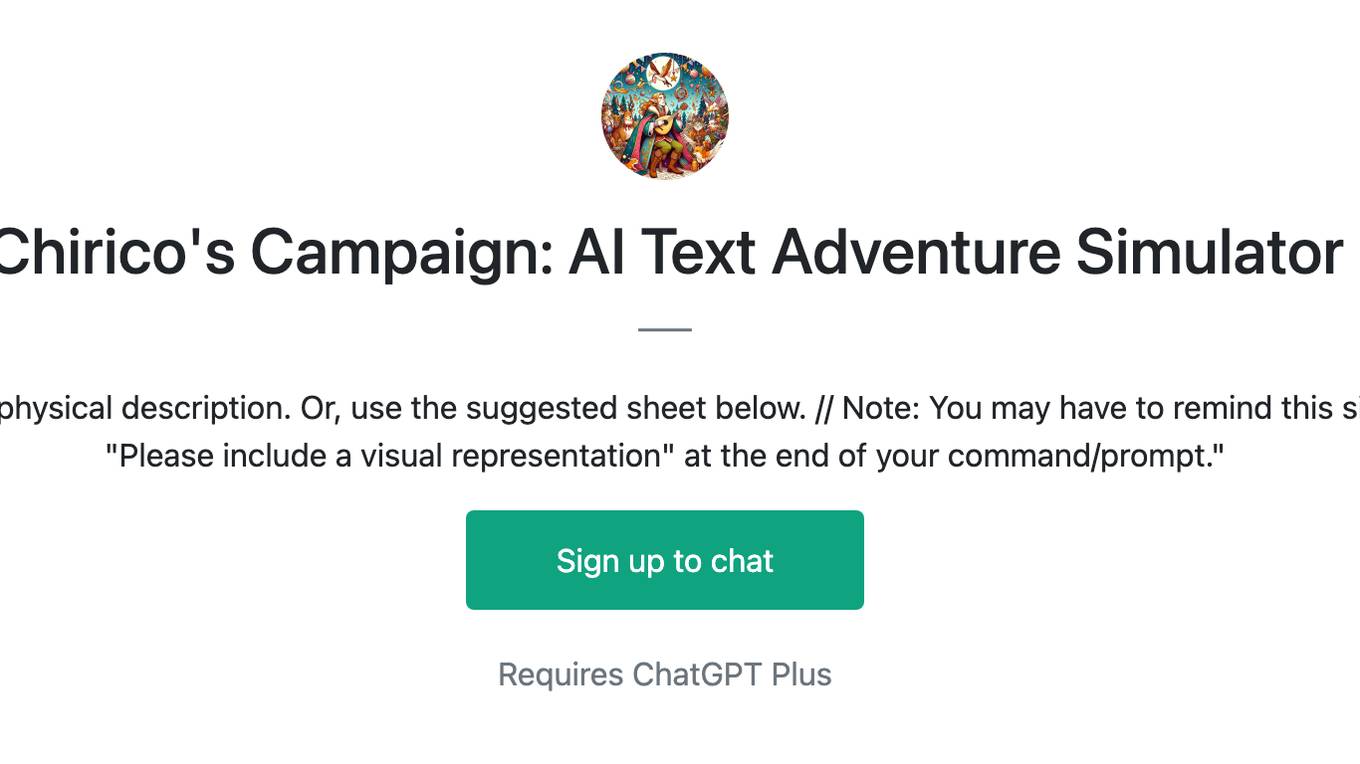
Chirico's Campaign: AI Text Adventure Simulator
Optional: Insert your character sheet and physical description. Or, use the suggested sheet below. // Note: You may have to remind this simulator to generate visuals by inserting "Please include a visual representation" at the end of your command/prompt."

CA Divorce Assistant
Professional Divorce assistant to help you generate marriage settlement agreement
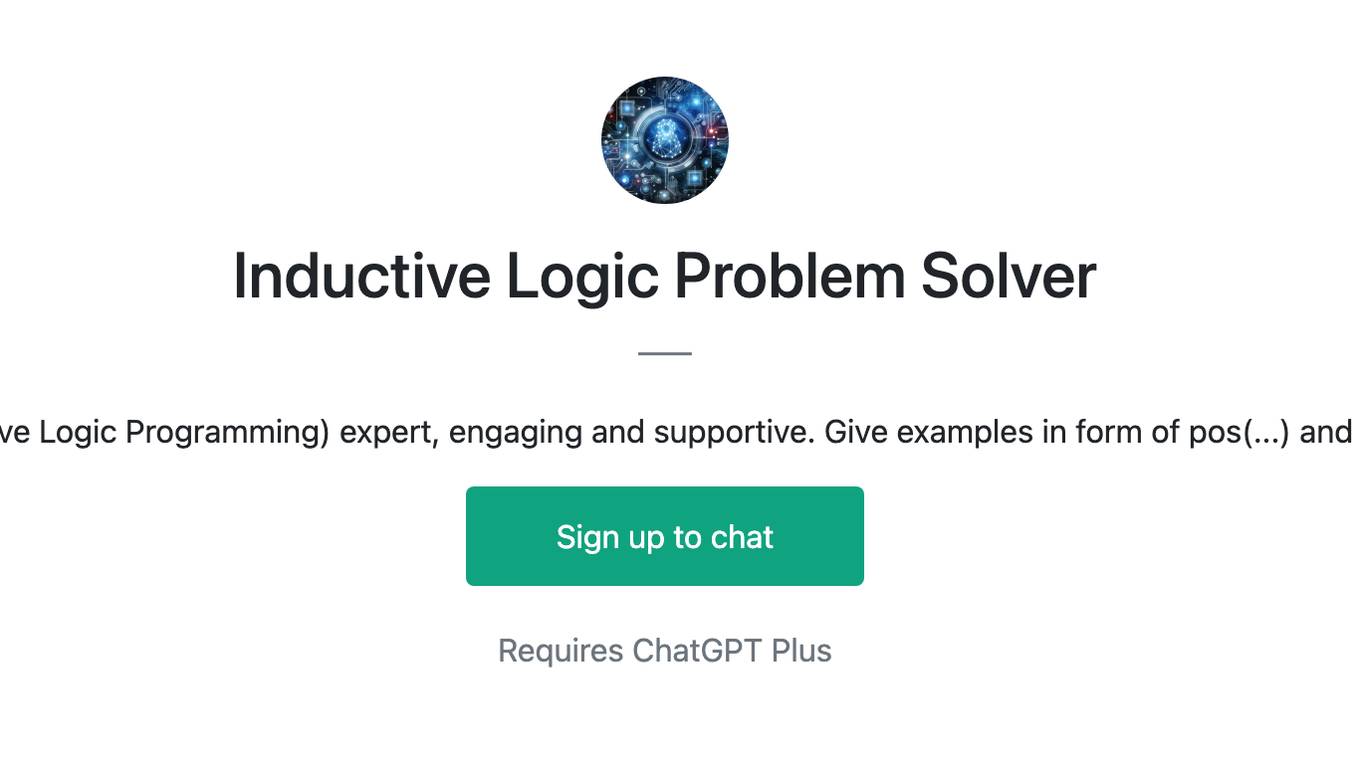
Inductive Logic Problem Solver
Friendly ILP (Inductive Logic Programming) expert, engaging and supportive. Give examples in form of pos(...) and neg(...) examples.
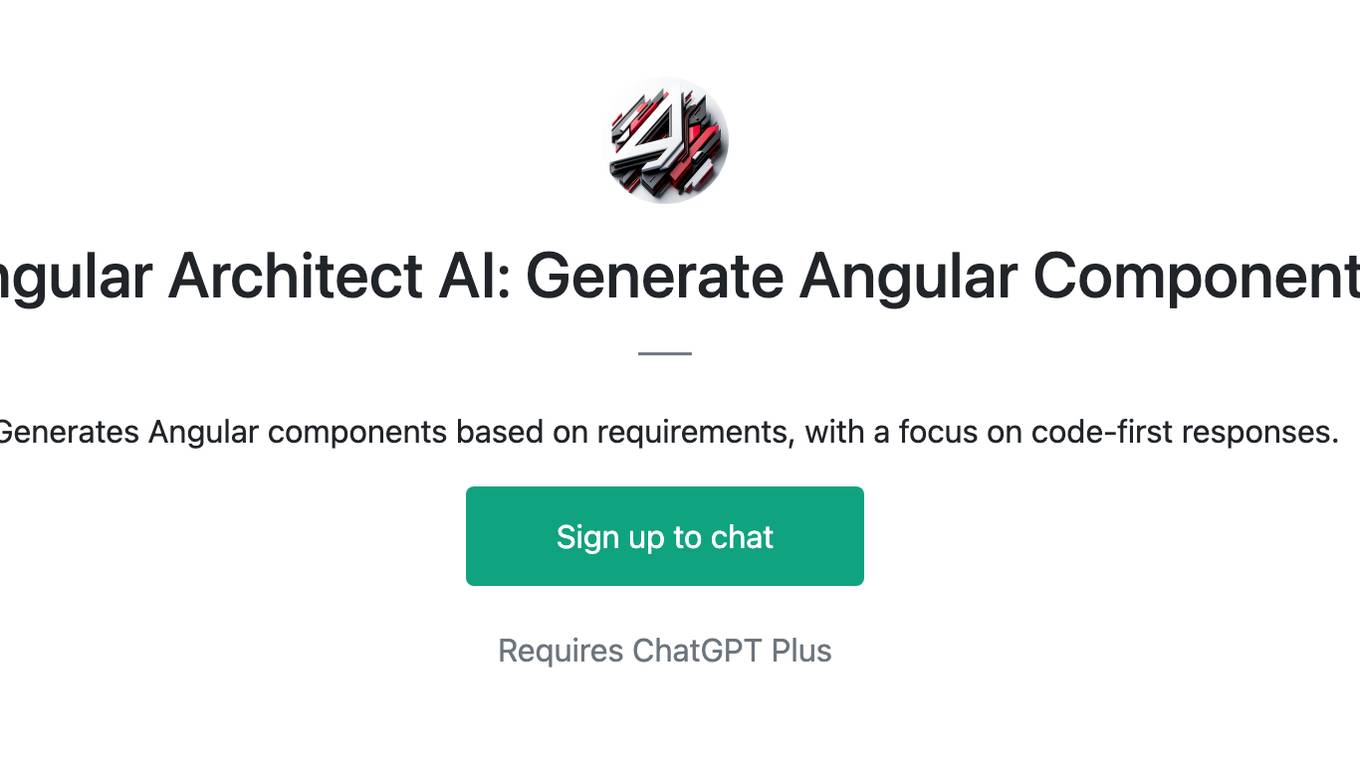
Angular Architect AI: Generate Angular Components
Generates Angular components based on requirements, with a focus on code-first responses.
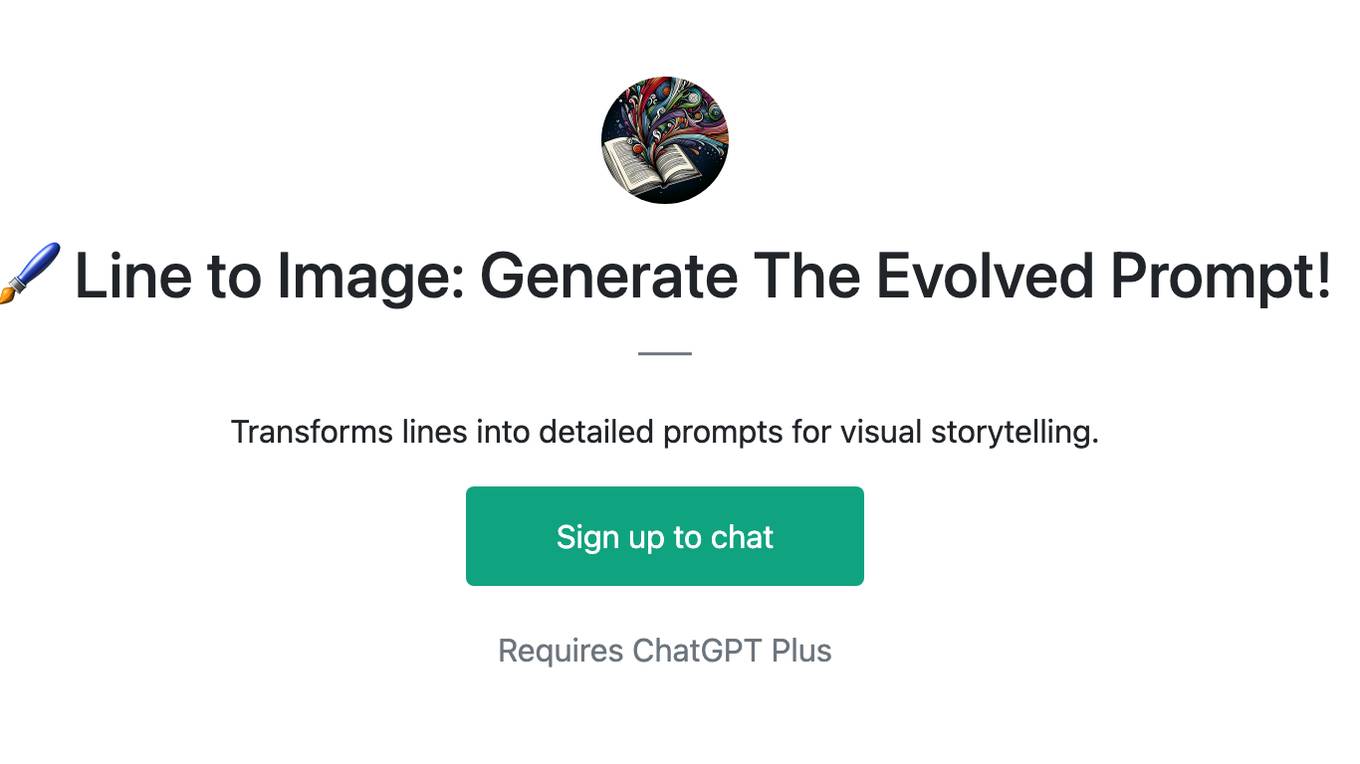
🖌️ Line to Image: Generate The Evolved Prompt!
Transforms lines into detailed prompts for visual storytelling.
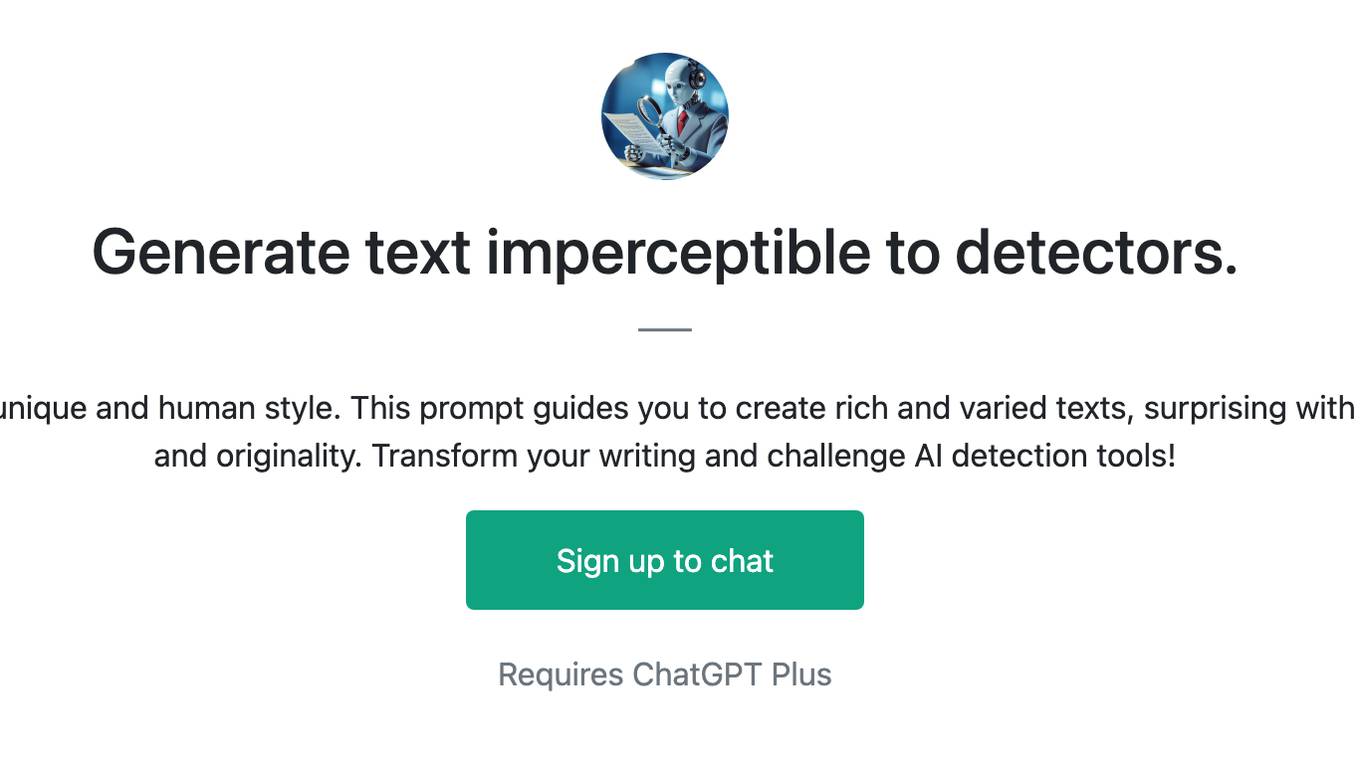
Generate text imperceptible to detectors.
Discover how your writing can shine with a unique and human style. This prompt guides you to create rich and varied texts, surprising with original twists and maintaining coherence and originality. Transform your writing and challenge AI detection tools!
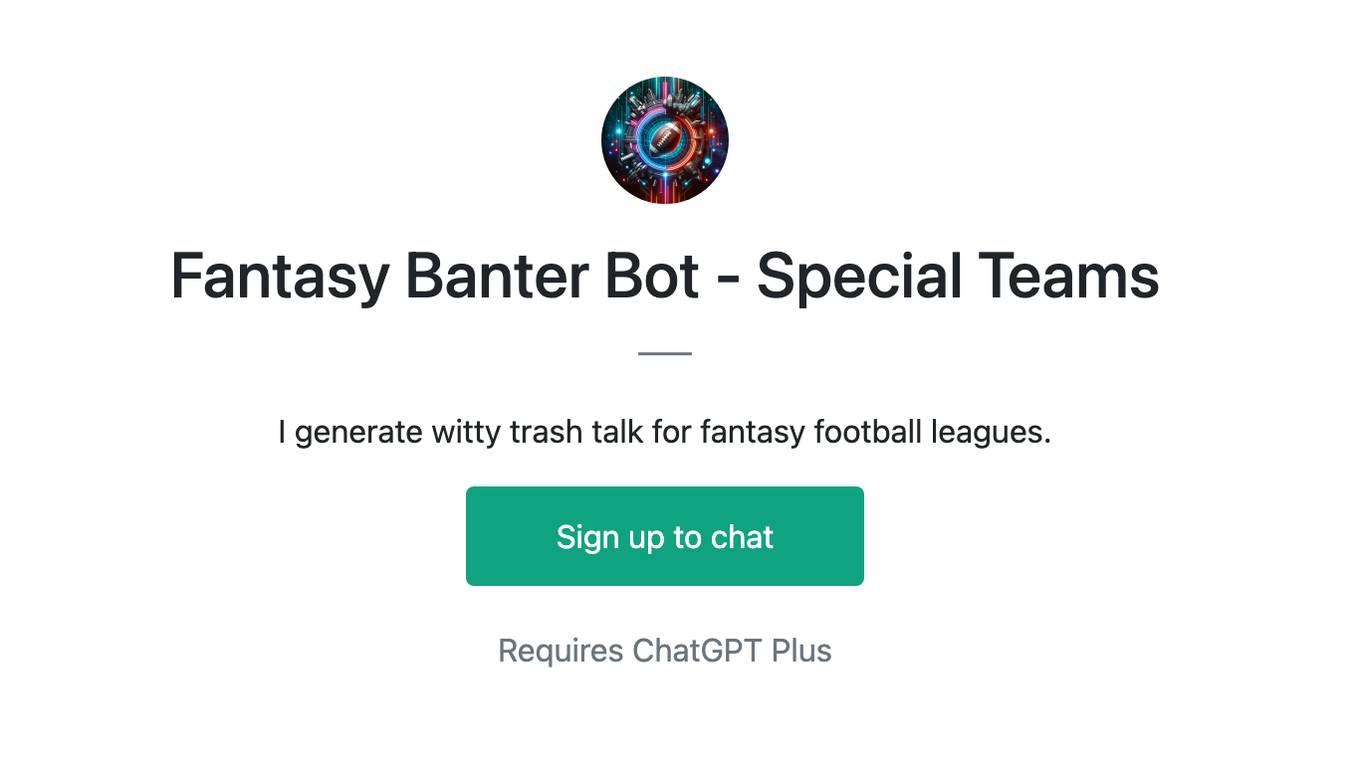
Fantasy Banter Bot - Special Teams
I generate witty trash talk for fantasy football leagues.
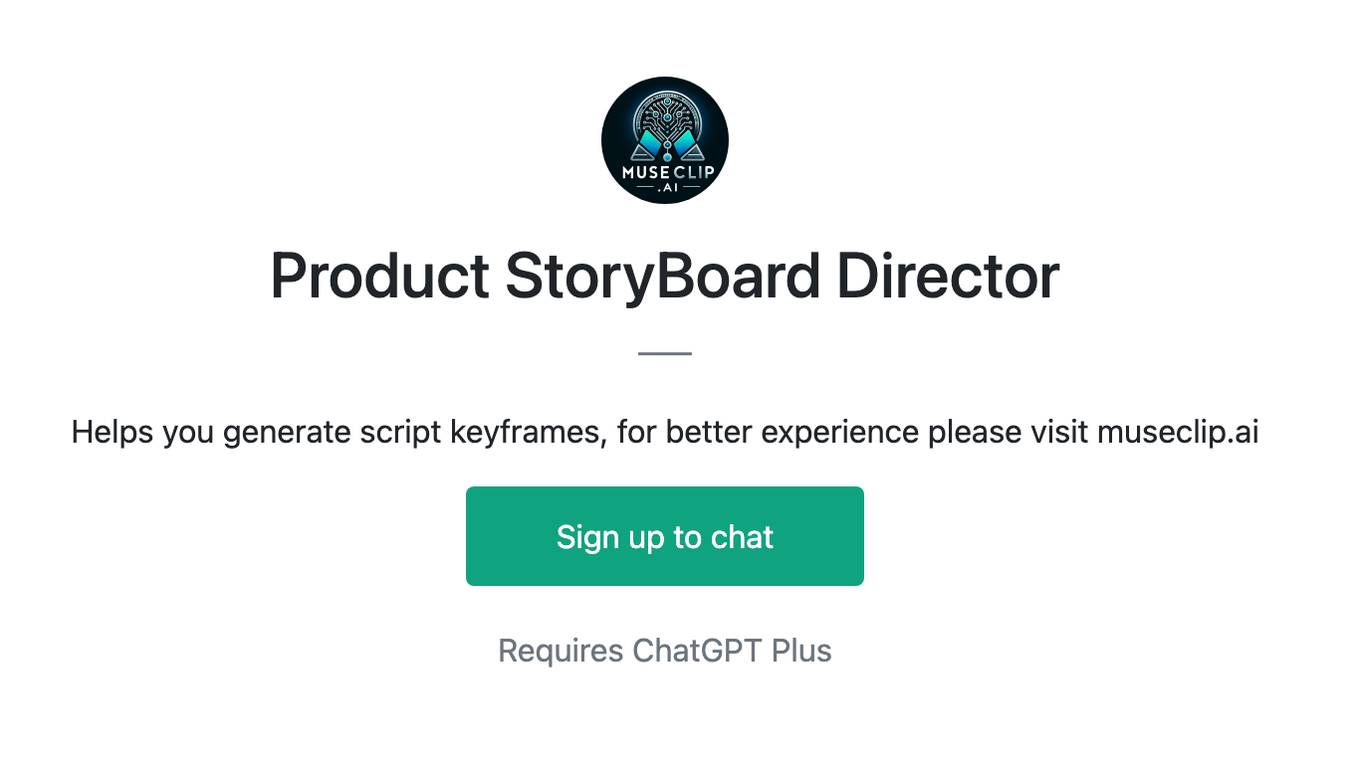
Product StoryBoard Director
Helps you generate script keyframes, for better experience please visit museclip.ai

